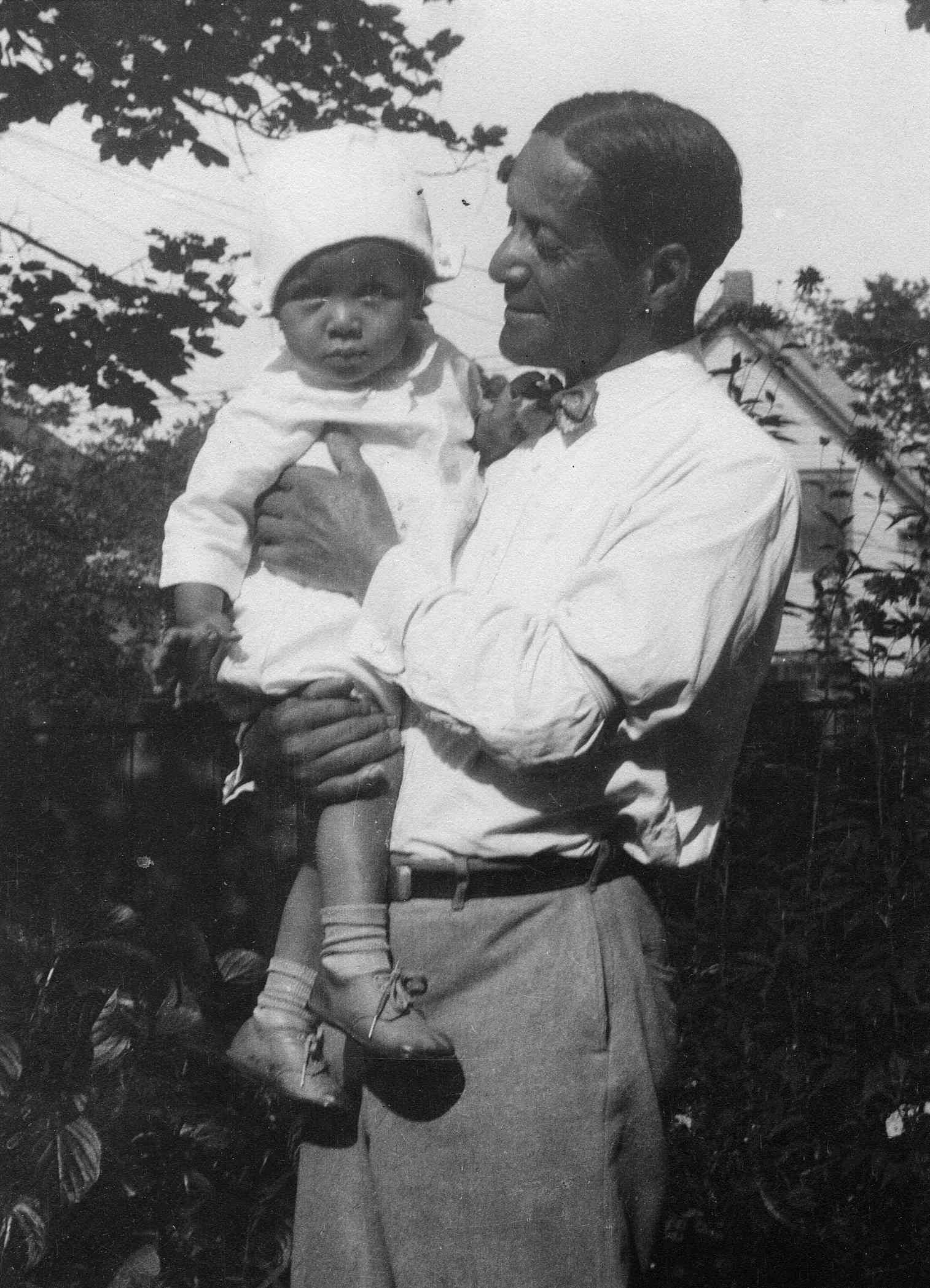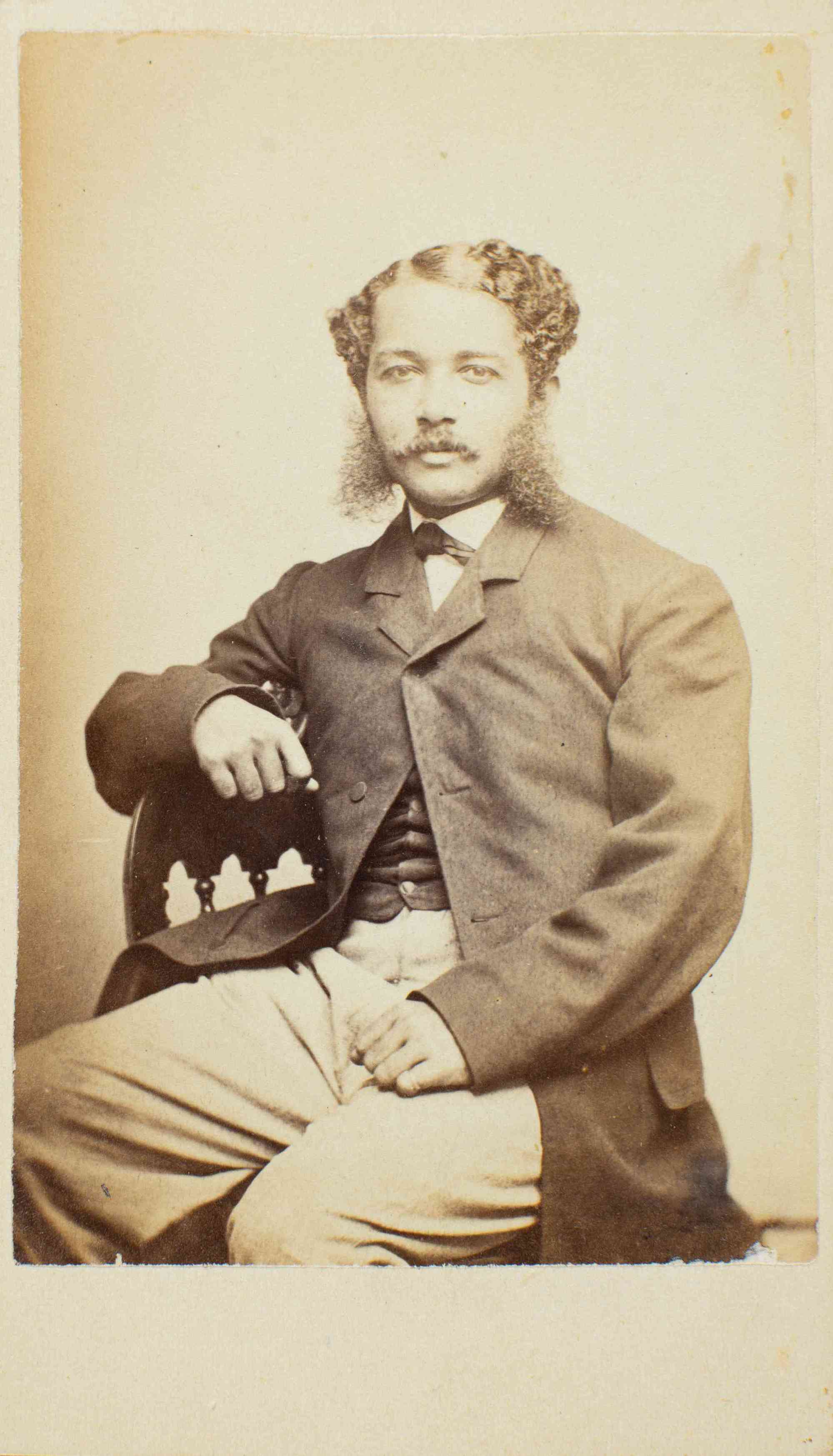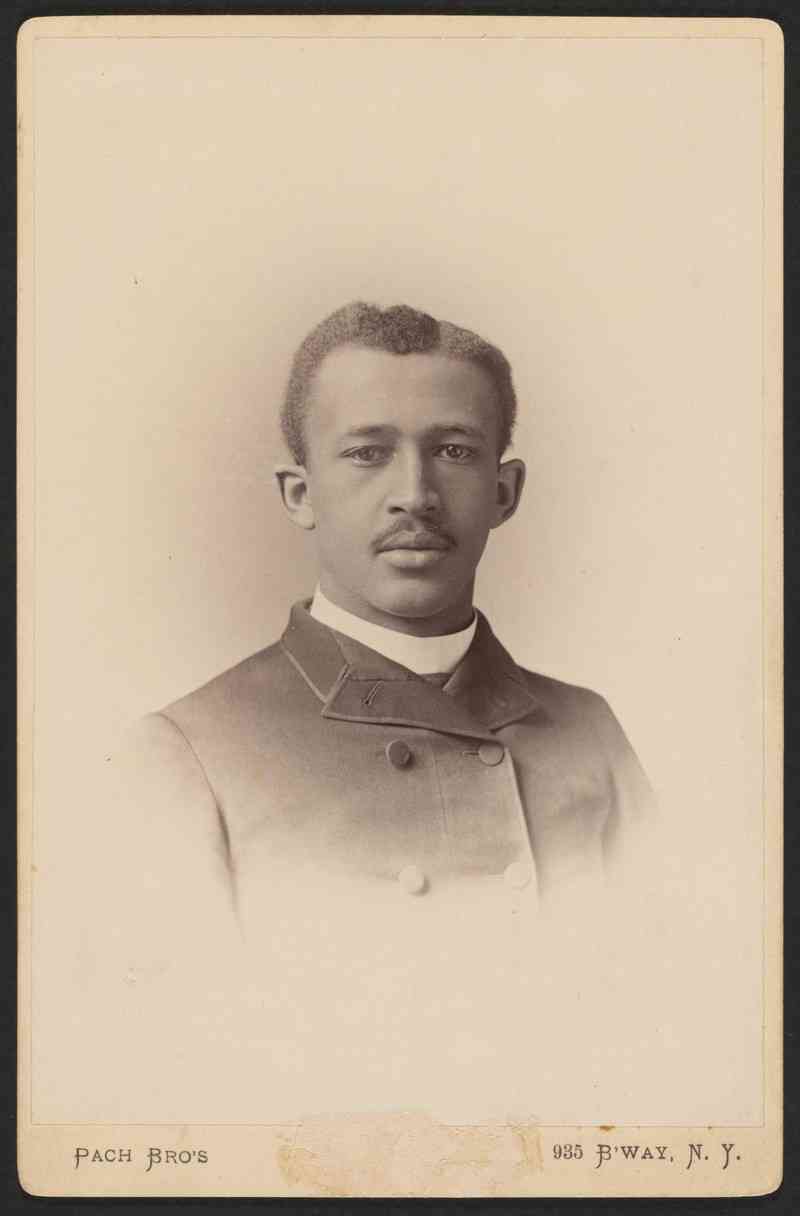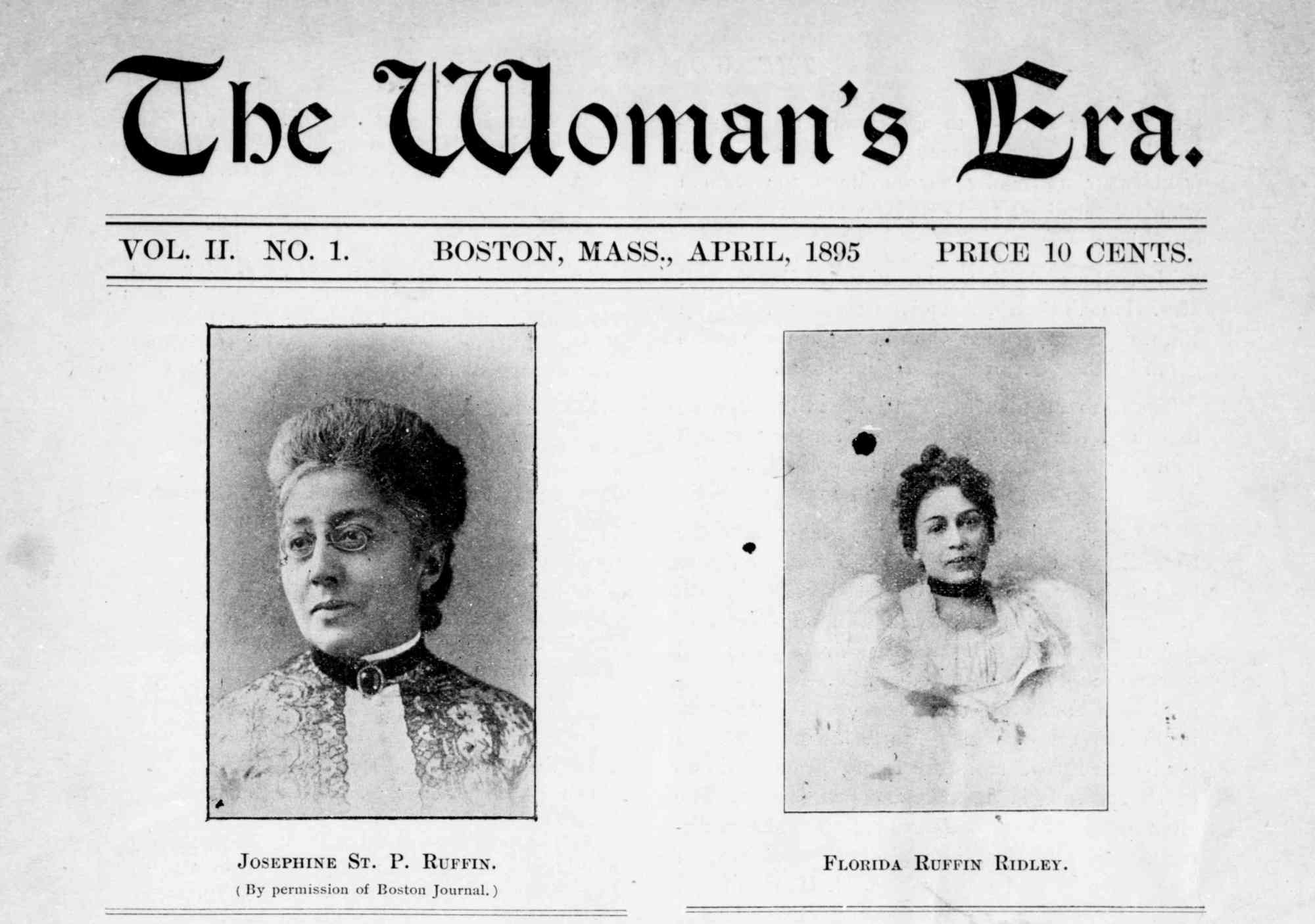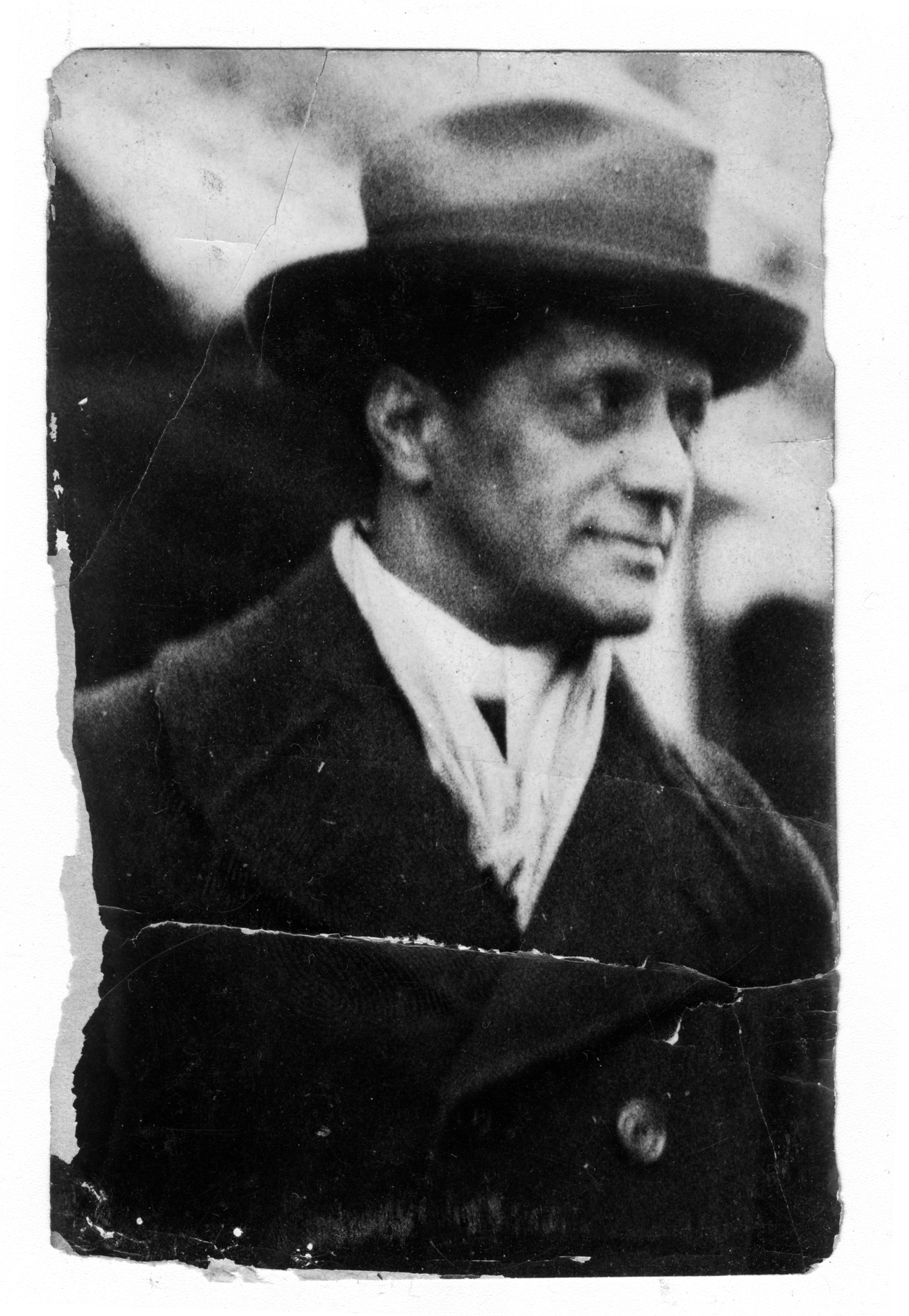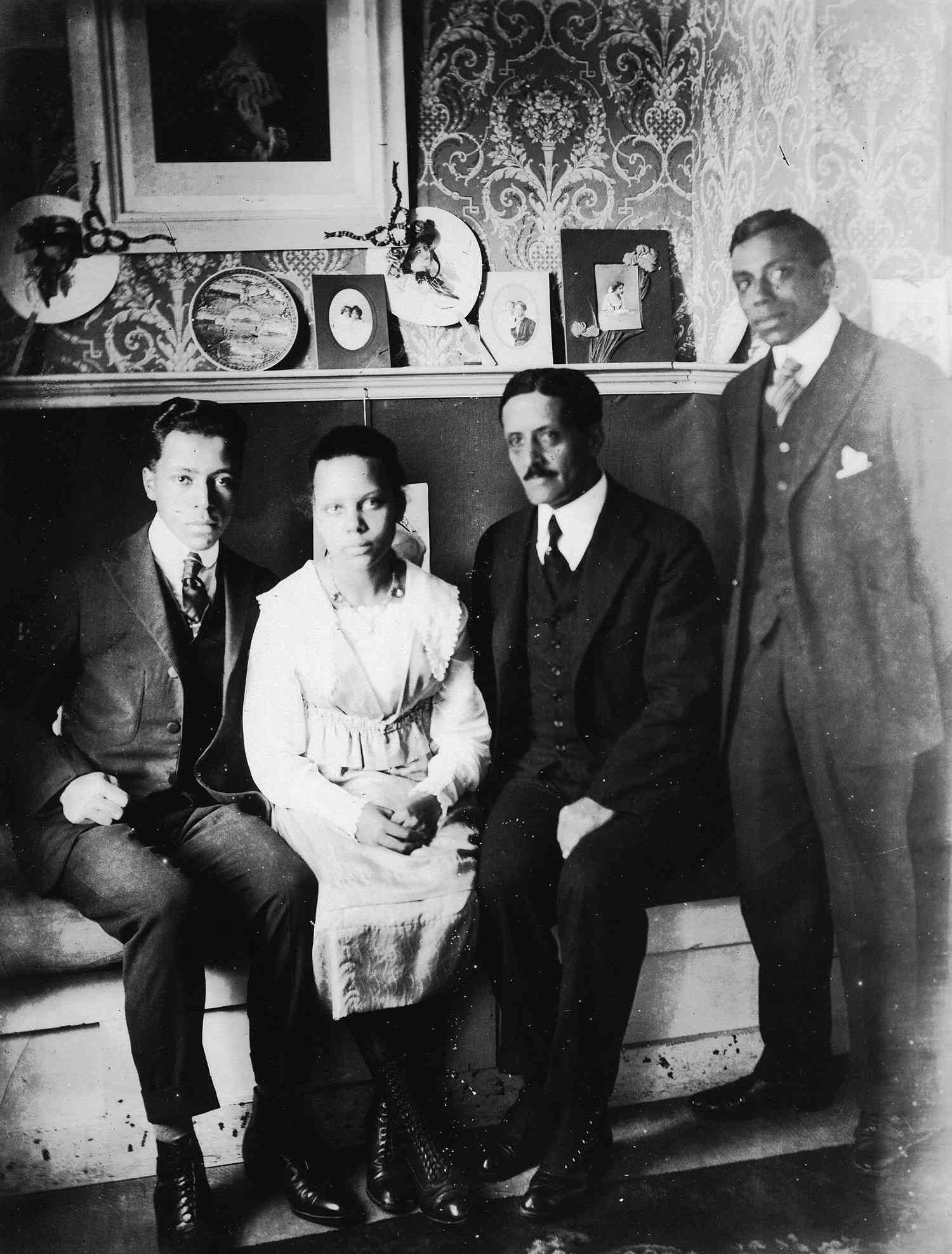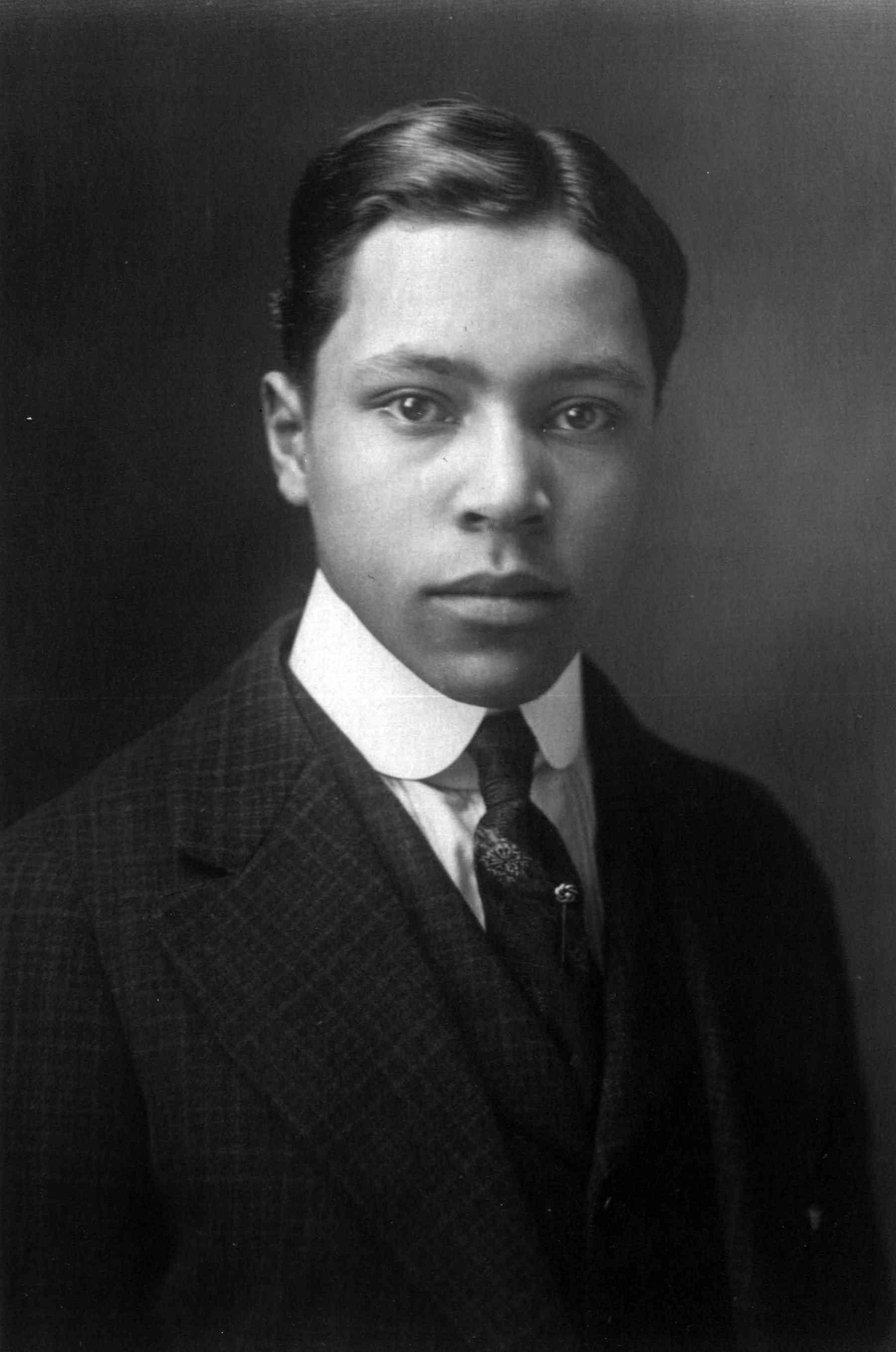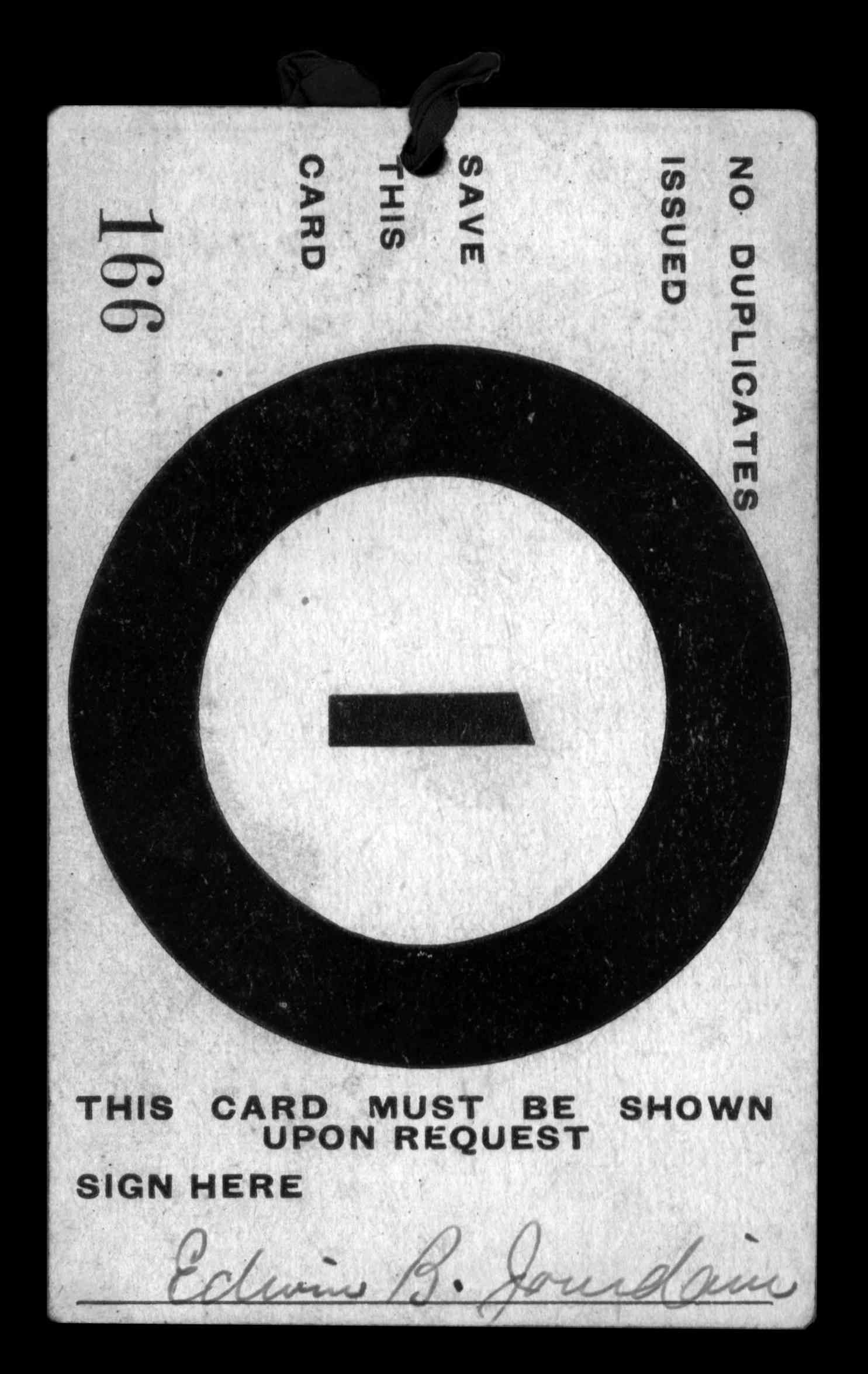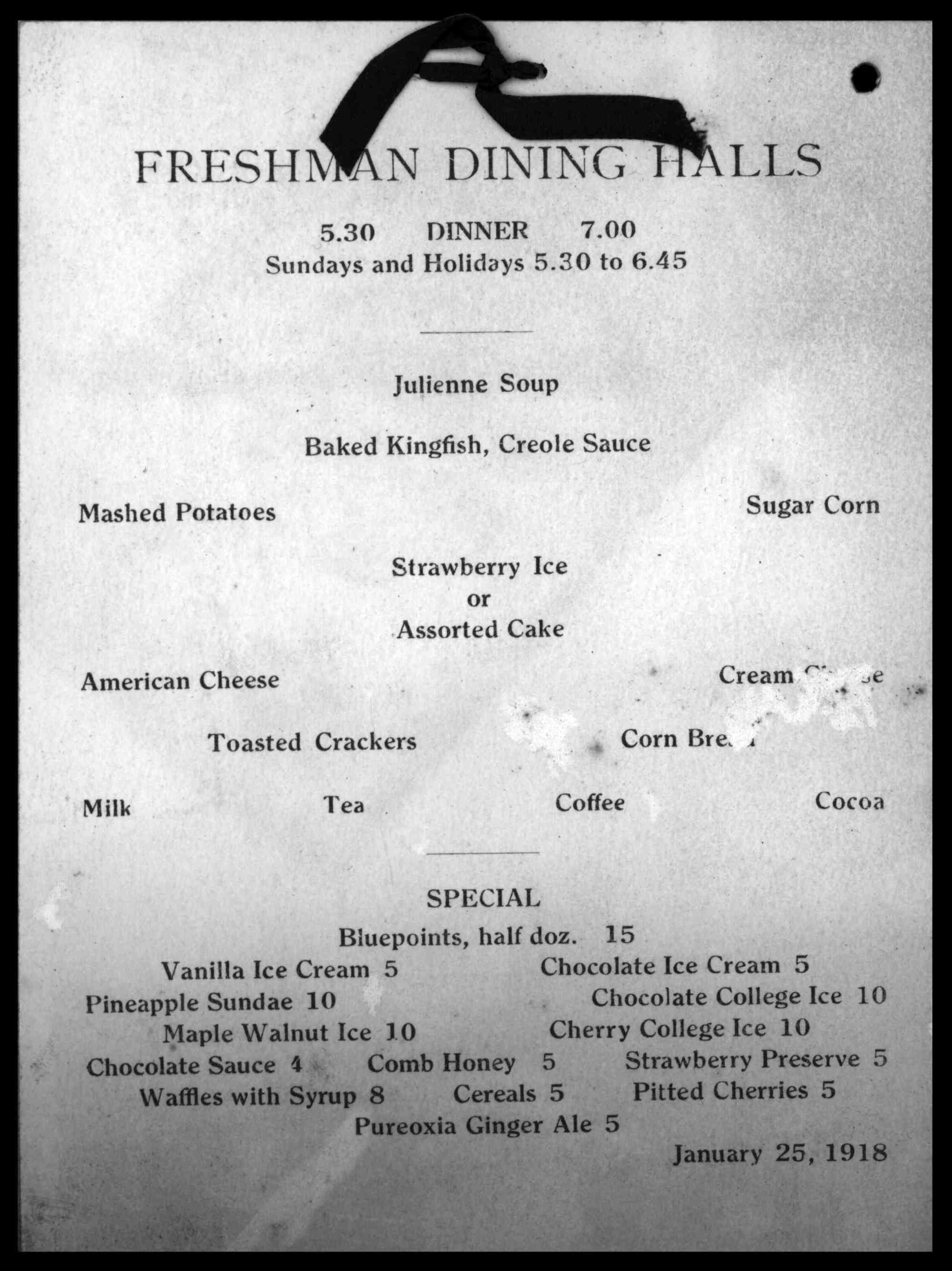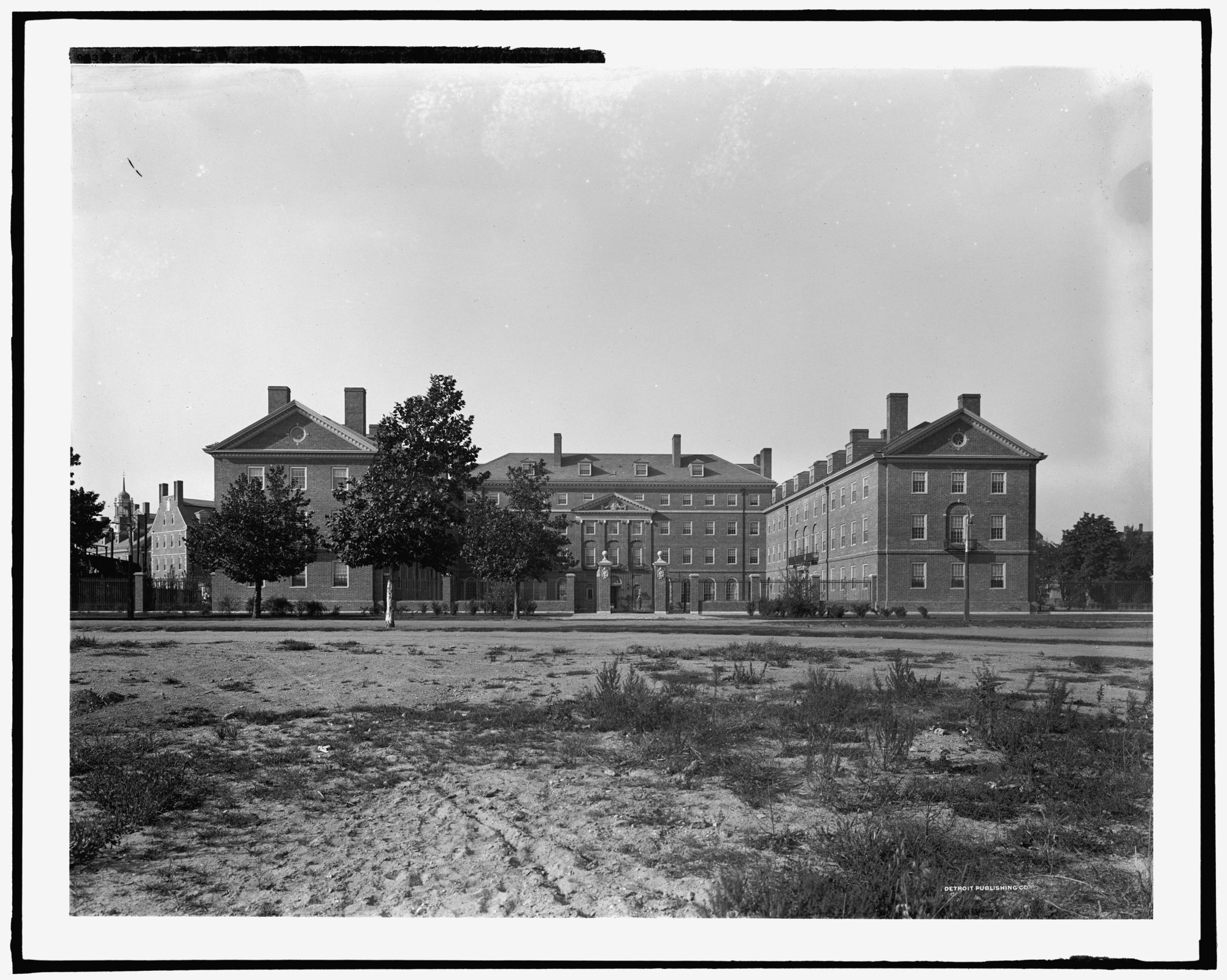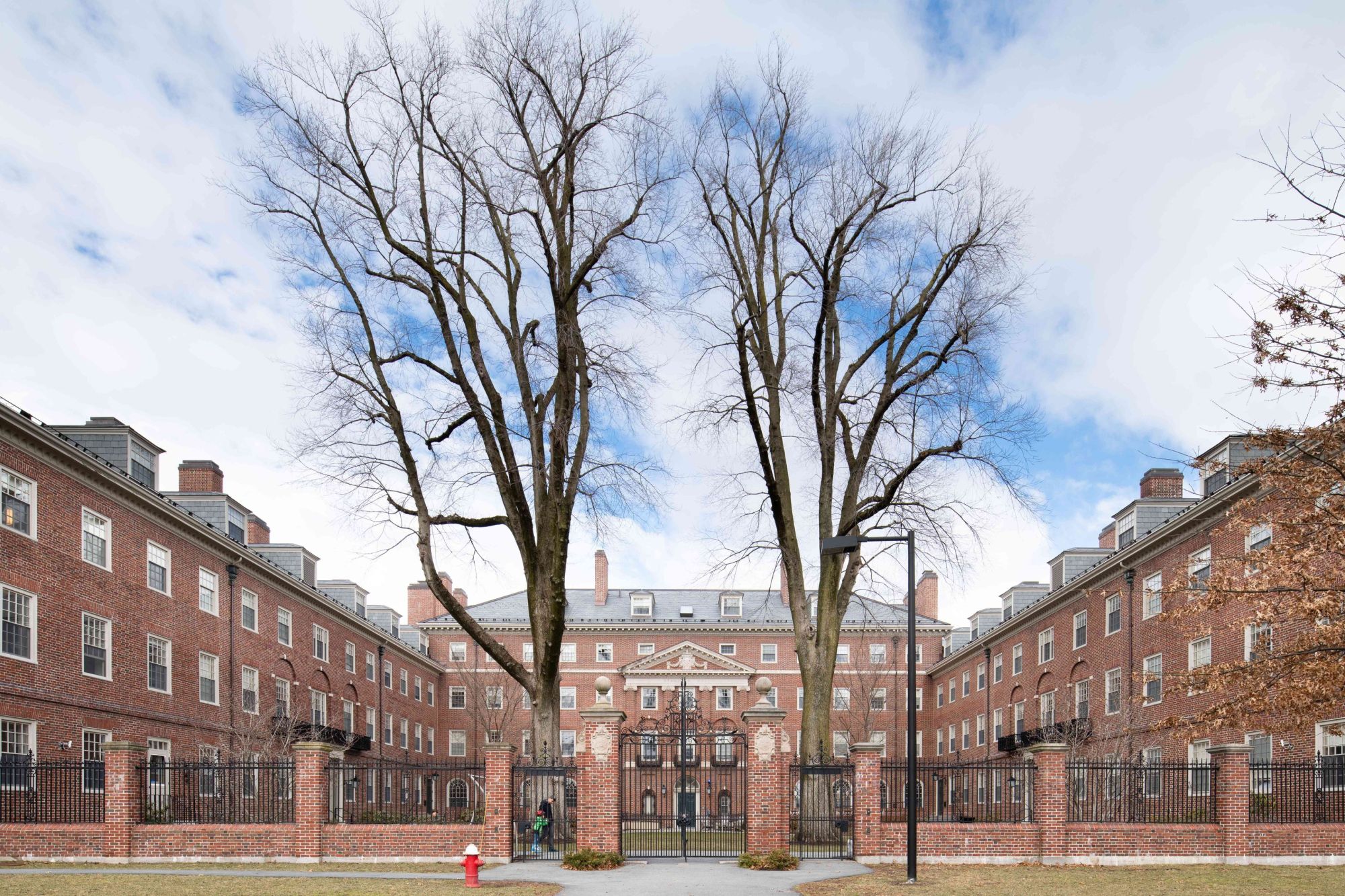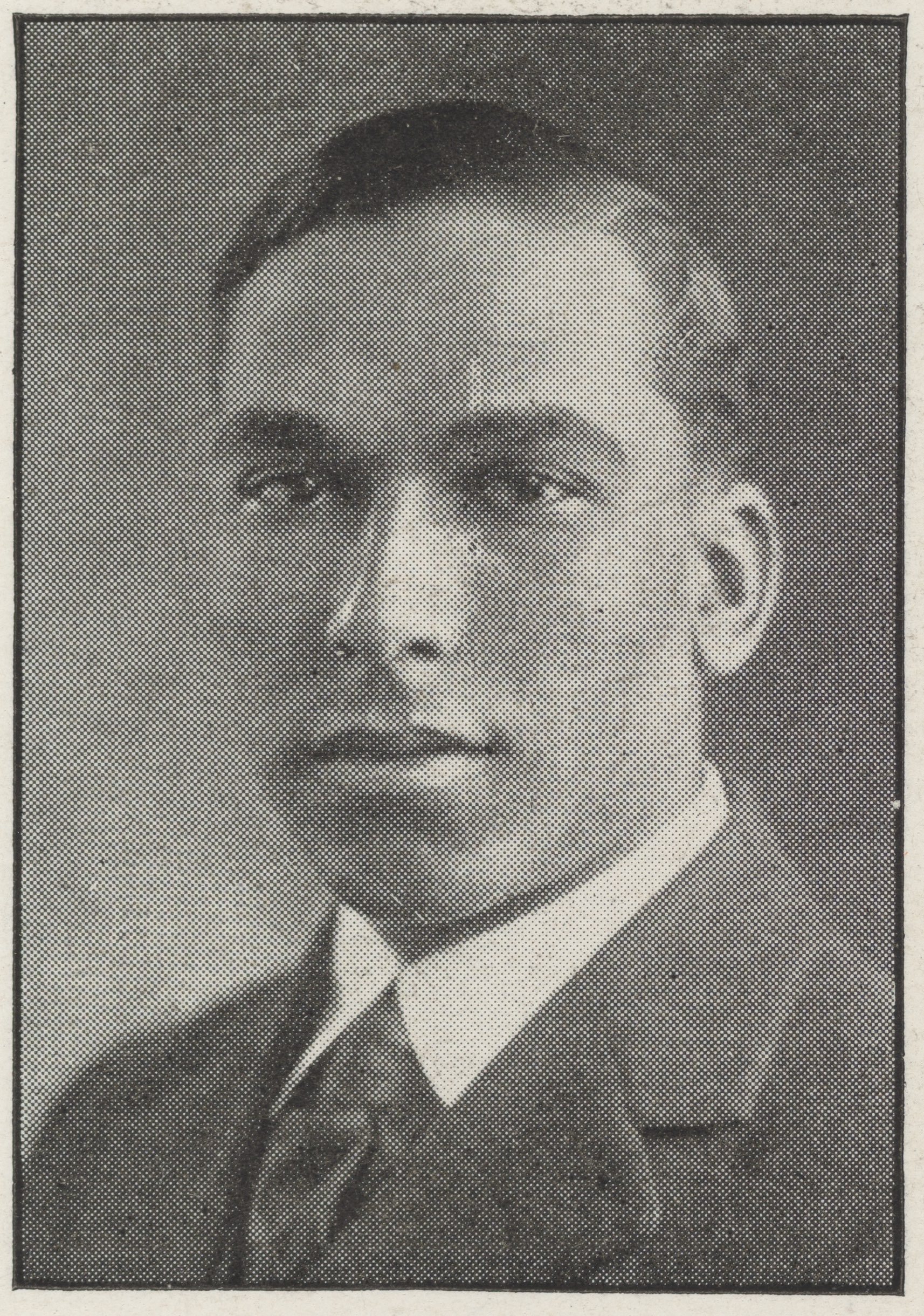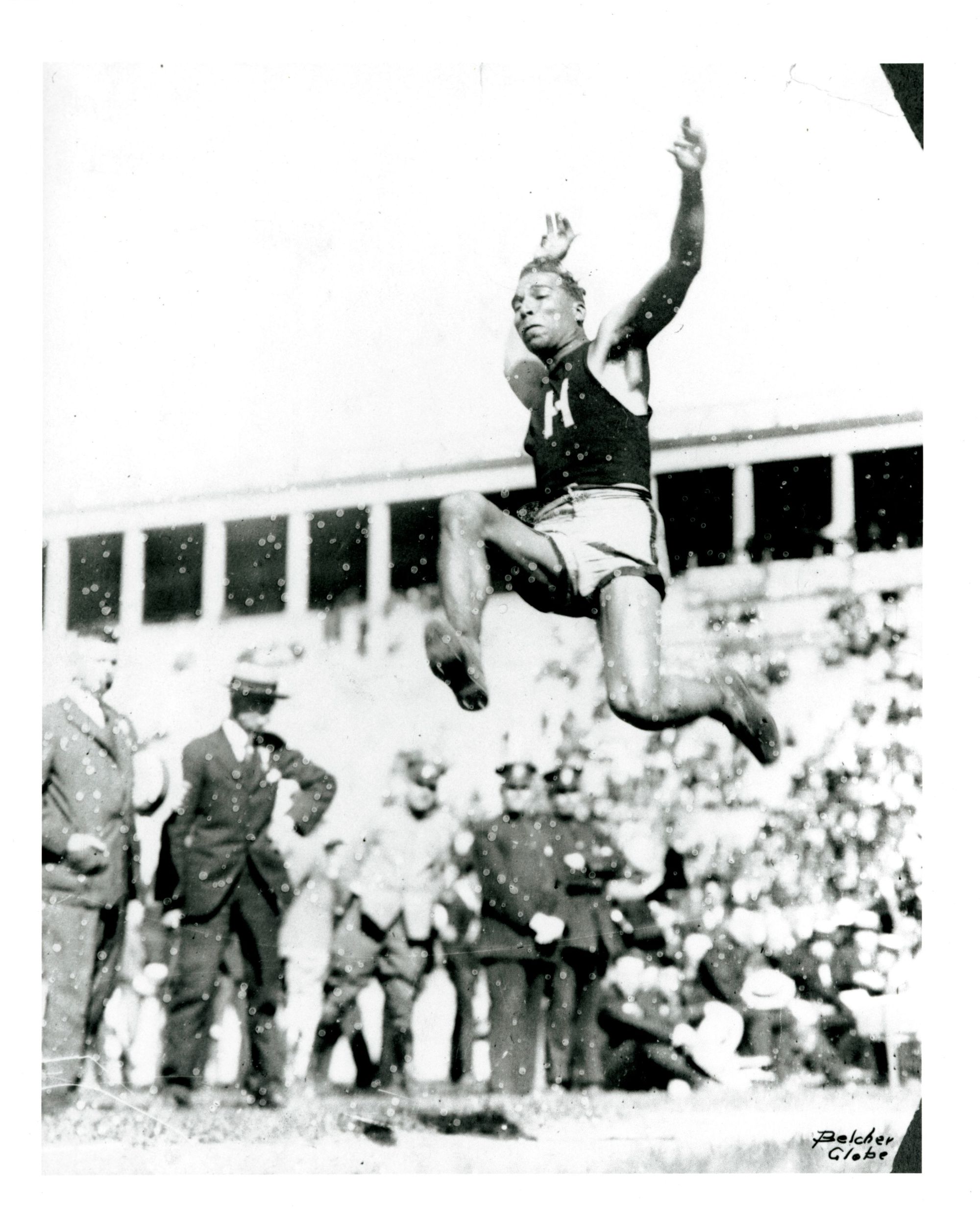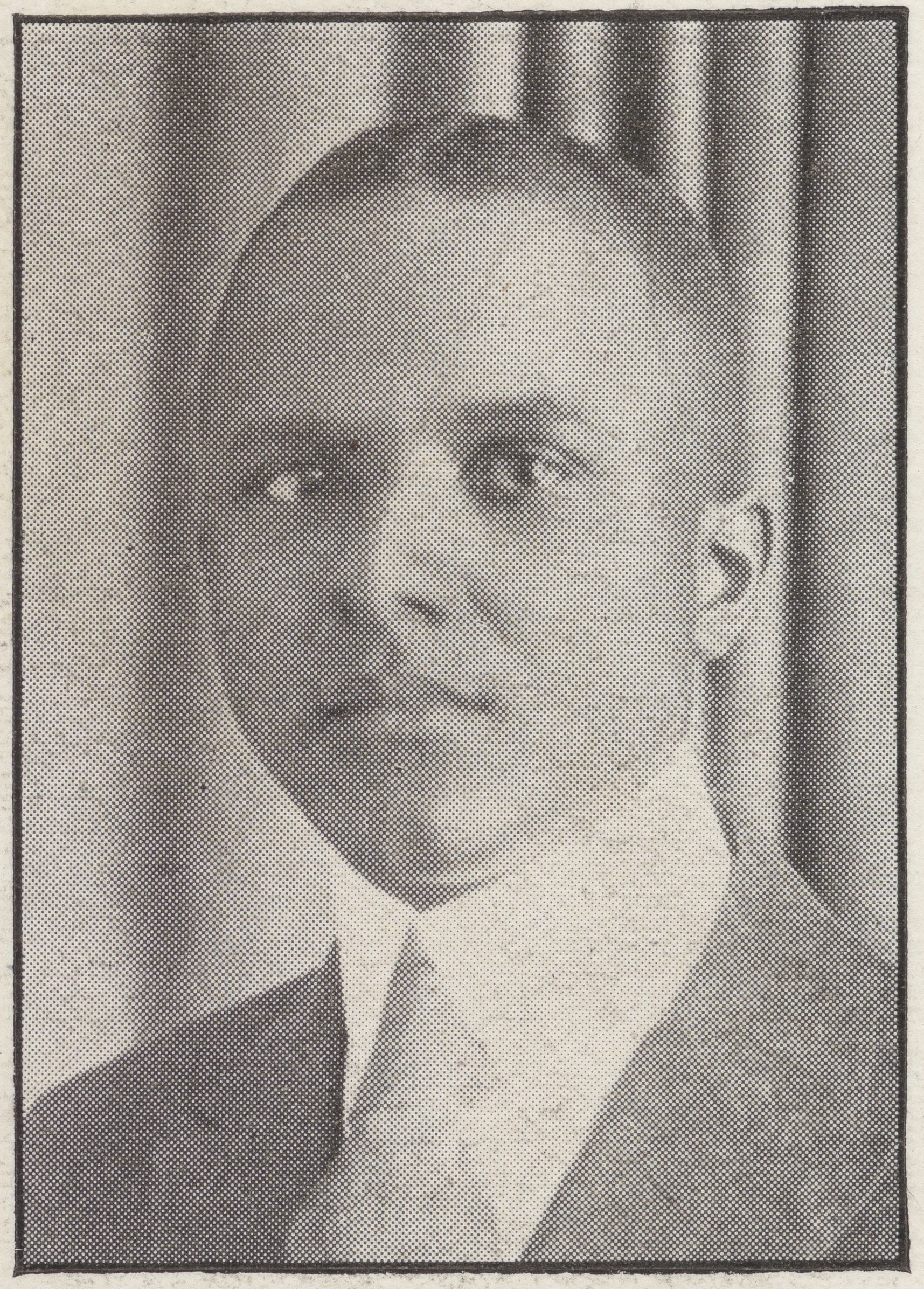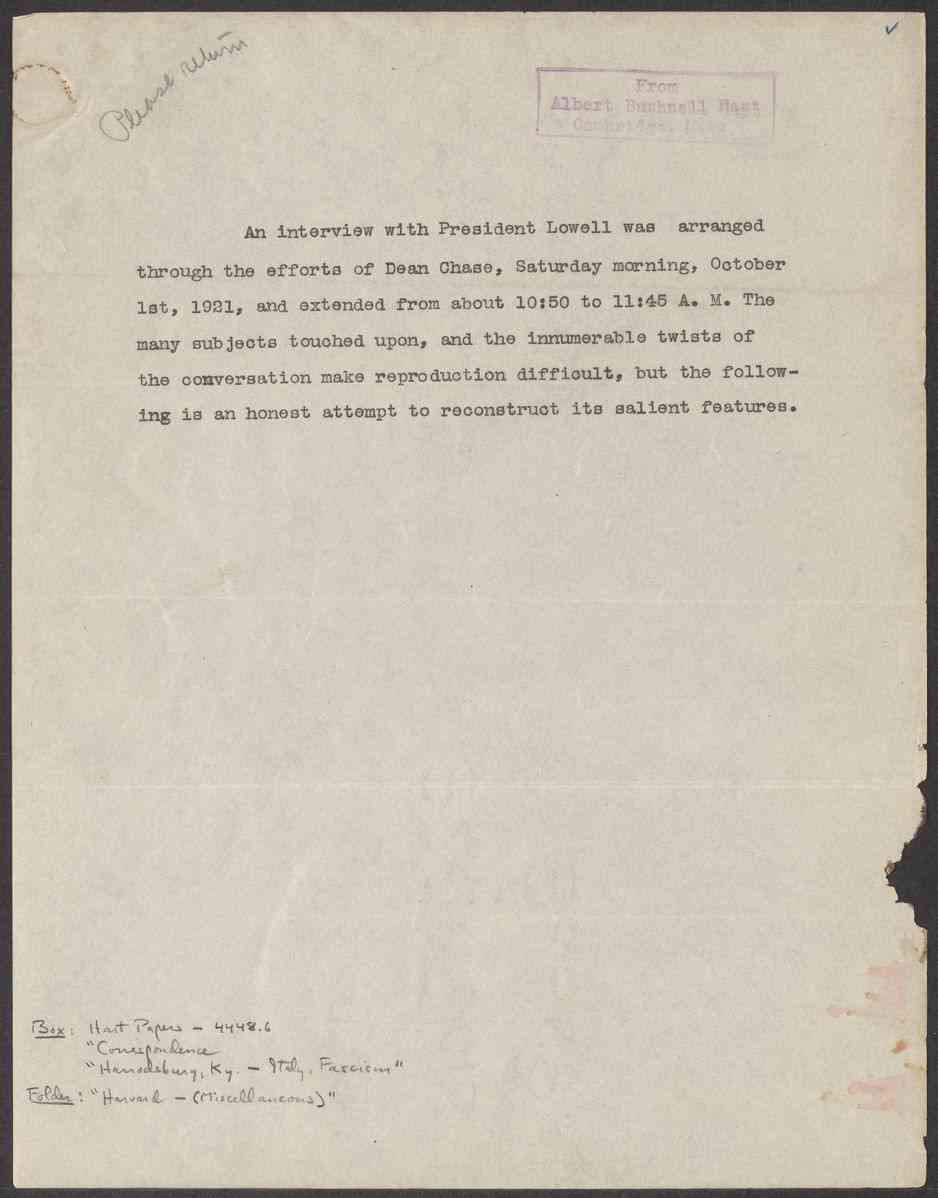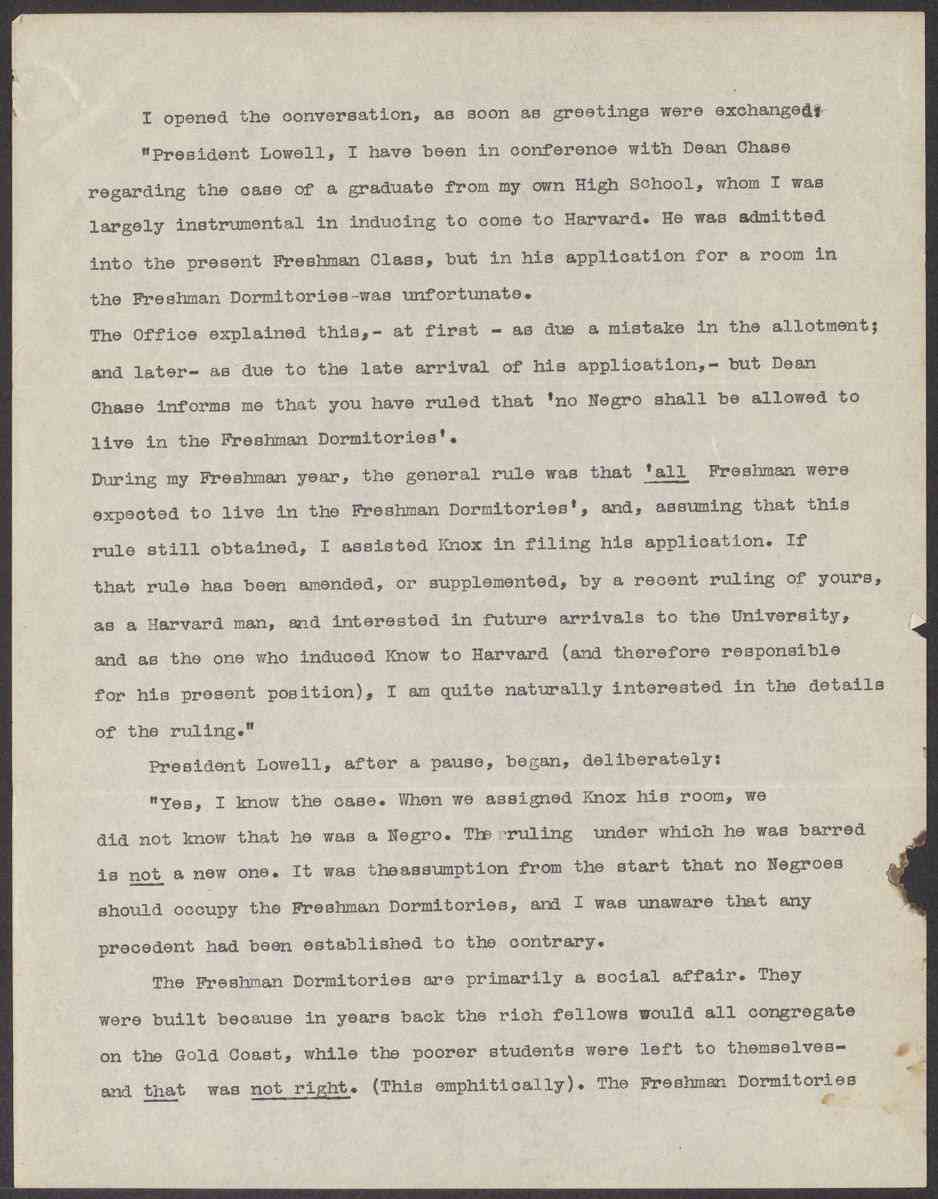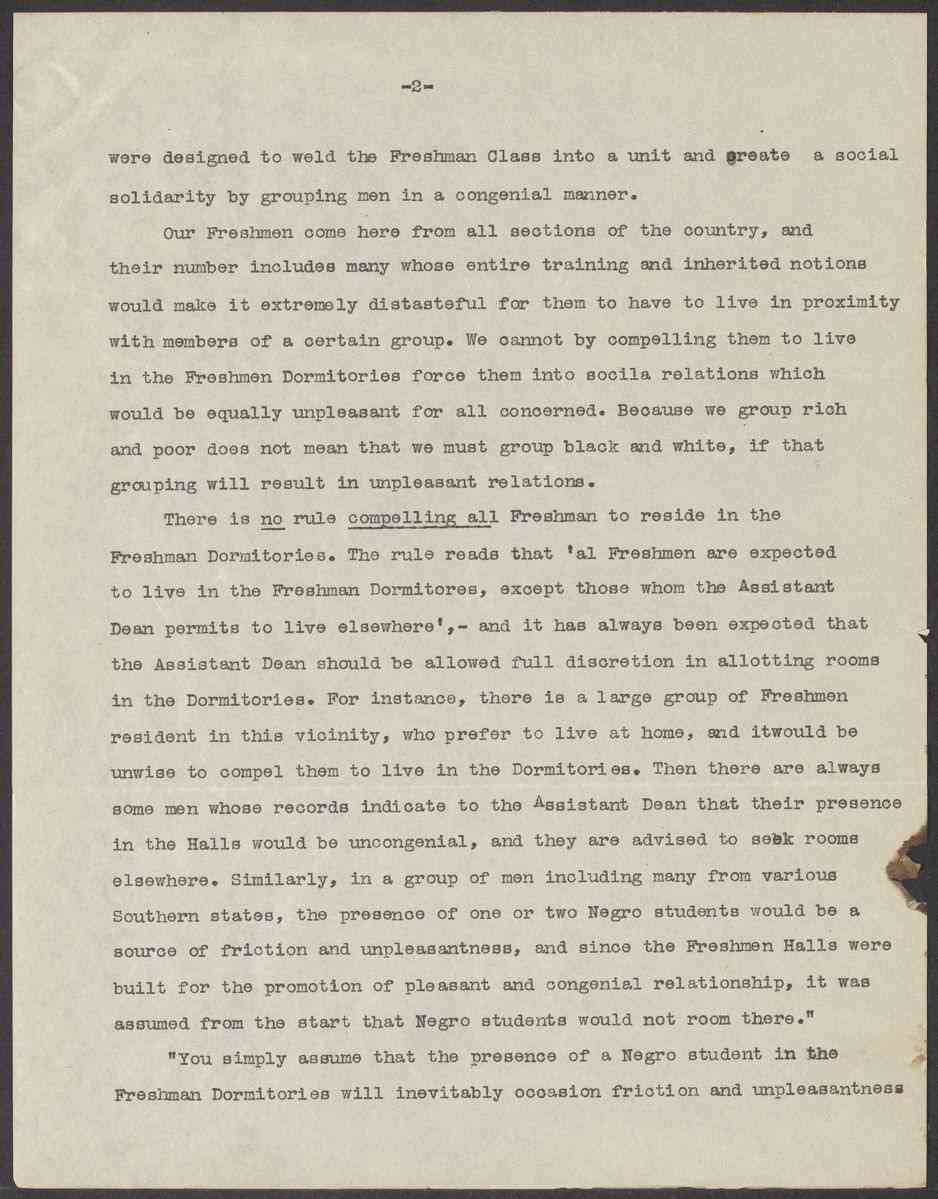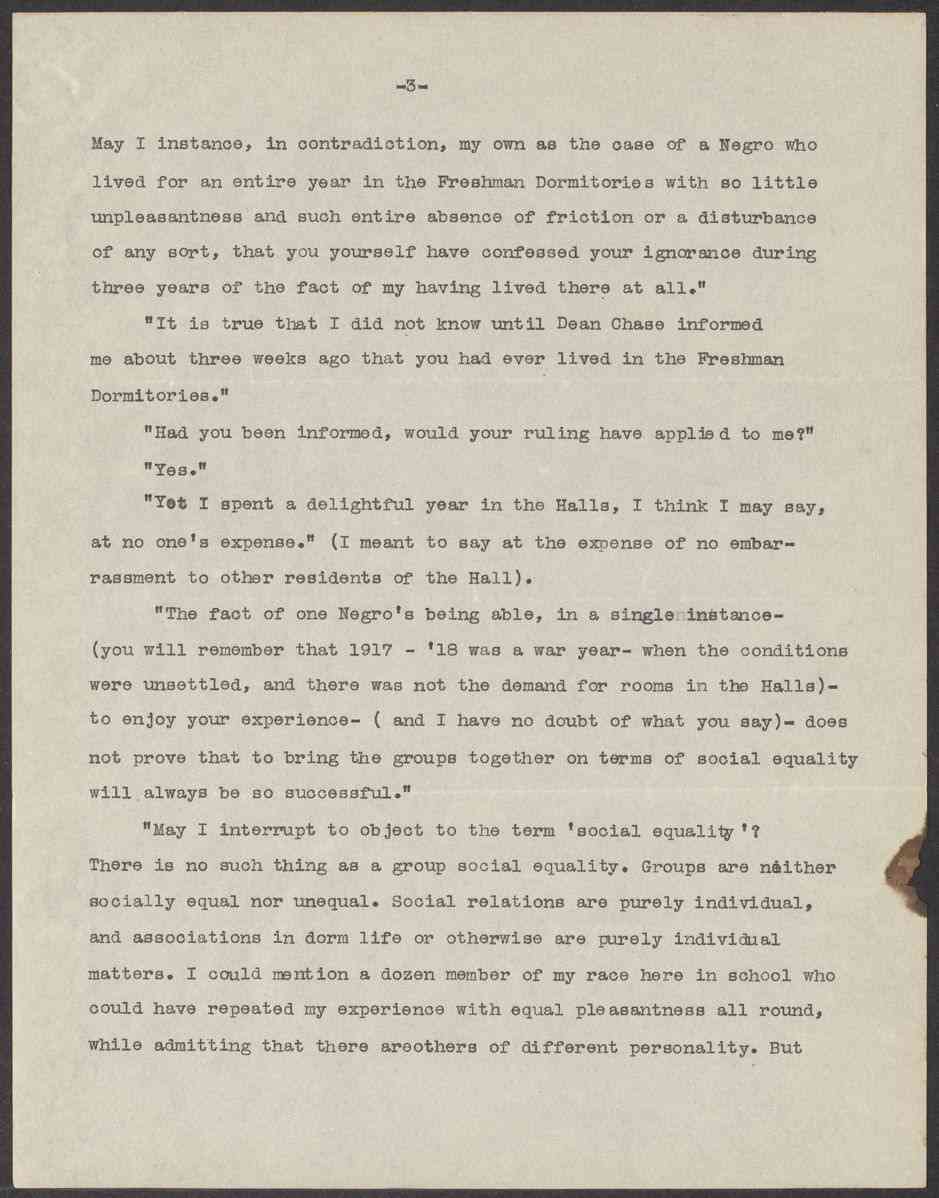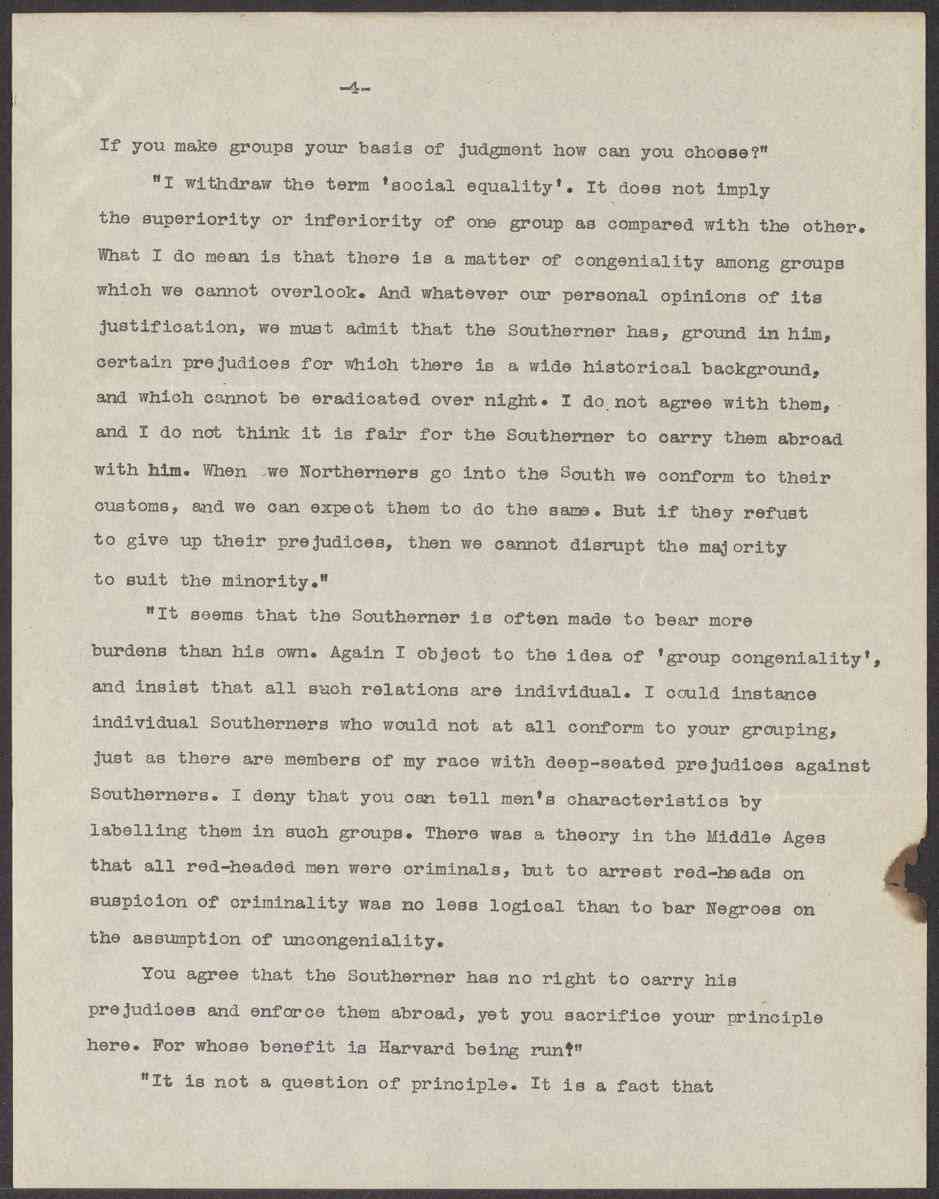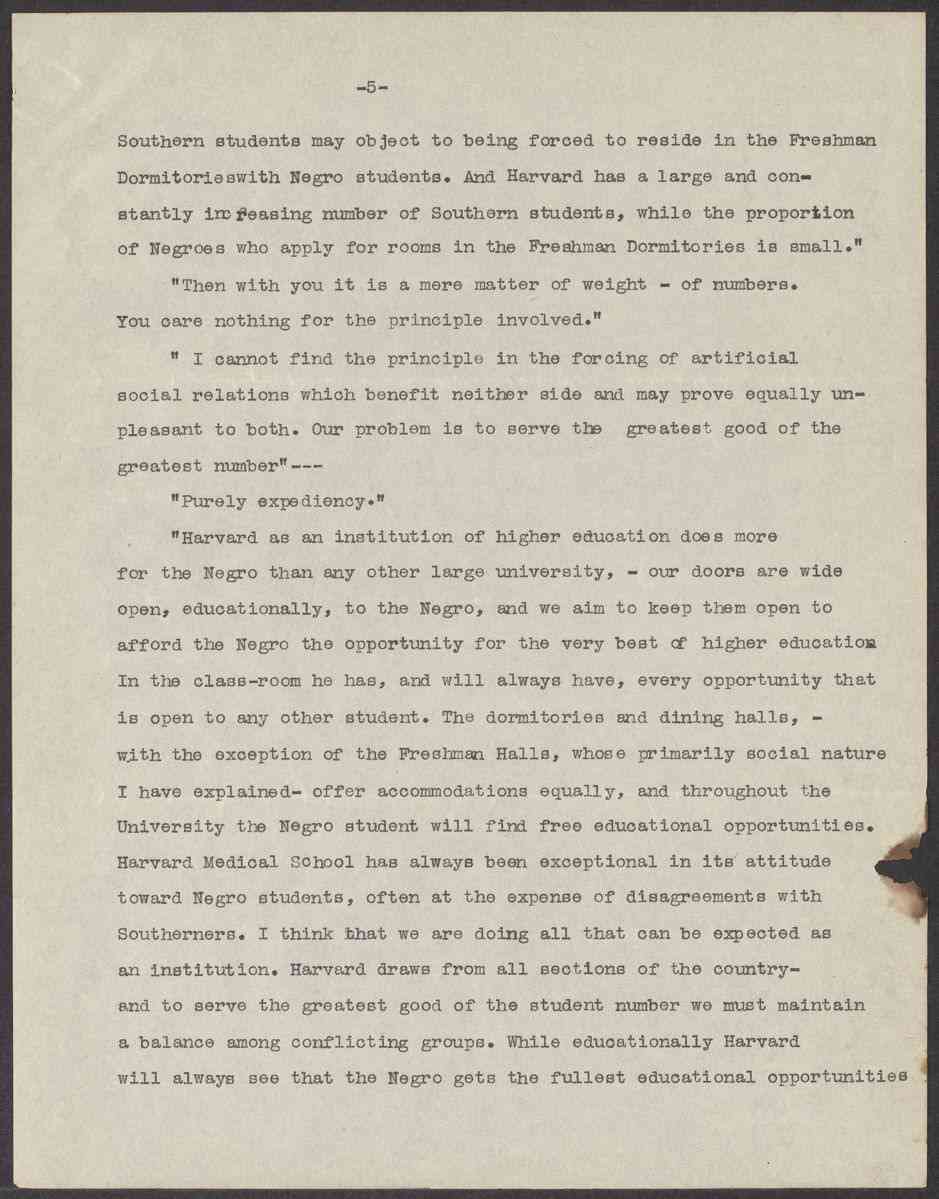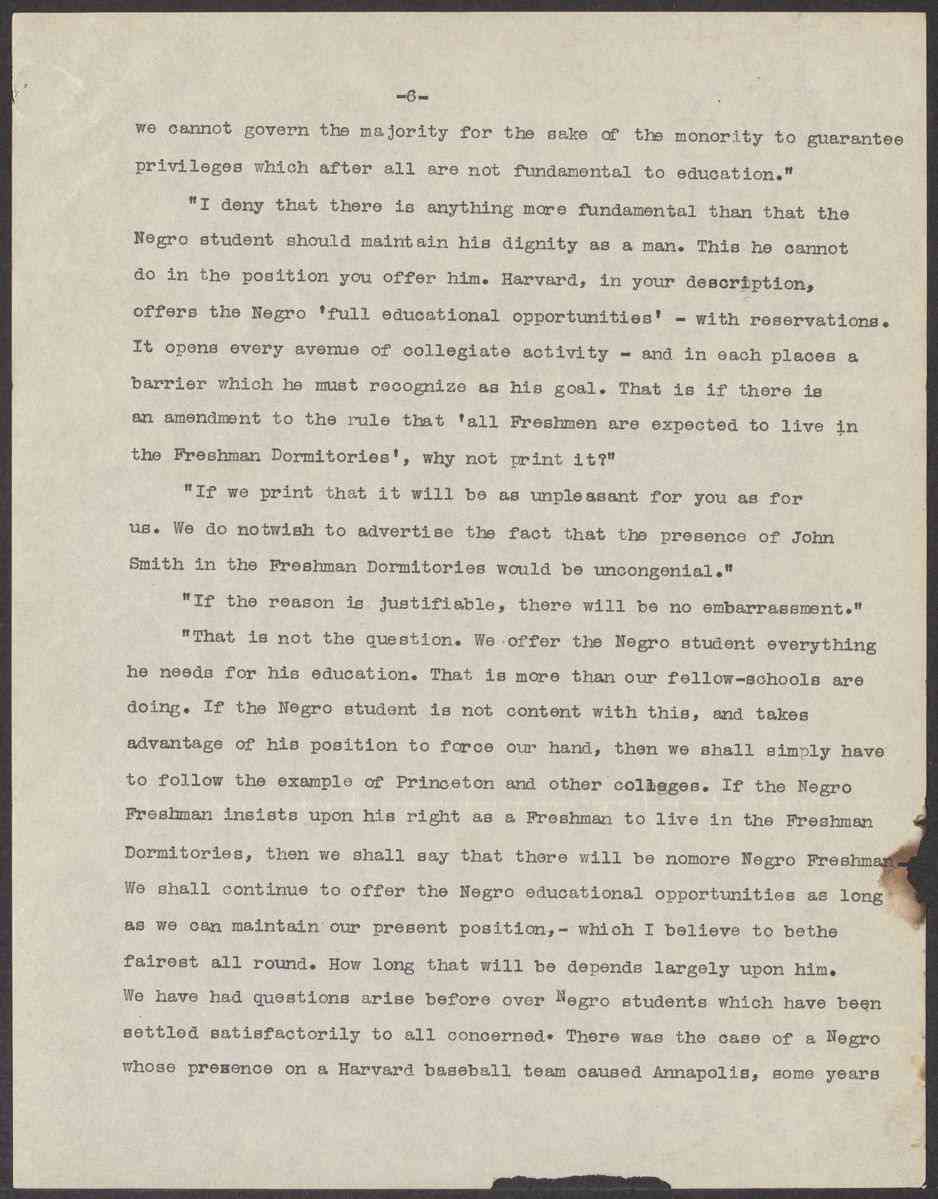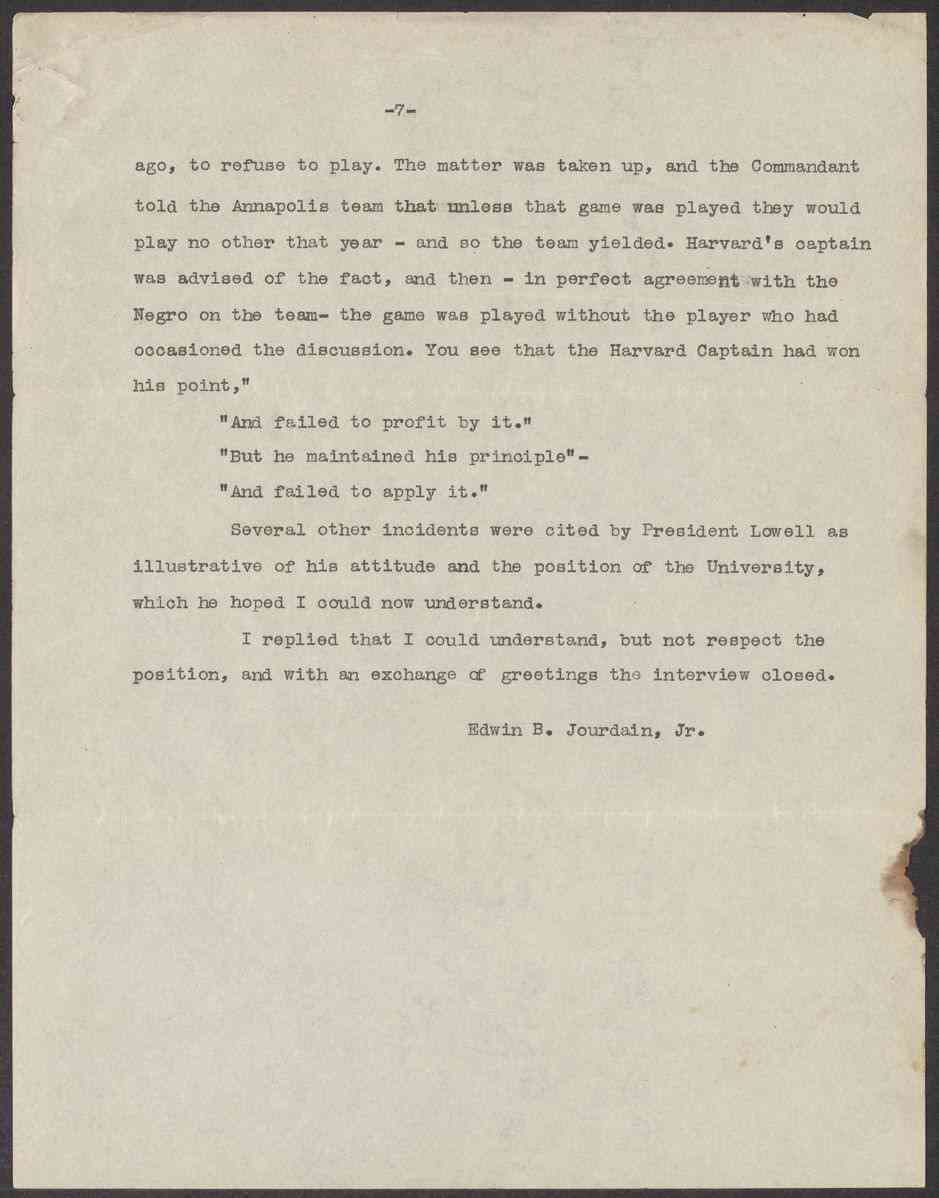The Jourdain Journey Begins
The Jourdain Journey Begins
Edwin B. Jourdain Sr. and his son, Edwin B. Jourdain Jr., were among the earliest Black students to earn degrees from New England’s predominantly white universities. Despite the oftentimes inhospitable learning environments they faced, they and their fellow Black graduates used the educations they earned and the networks they built to make vital contributions to the nationwide struggle for equality.
Edwin Bush Jourdain Sr. Arrives in Boston
Edwin Bush Jourdain Sr. was born and raised in New Bedford, Massachusetts, a historic New England whaling town. New Bedford’s history-laden and tight-knit Black community was a leader in the fight to abolish slavery in the United States, building a reputation for New Bedford as a safe haven for enslaved people fleeing bondage in the American South.
After graduating from high school, Edwin Sr. pursued a legal career and was admitted to Boston University School of Law. As his grandson, Spencer Jourdain, wrote,
For an eager young student arriving in 1885, Boston offered an exhilarating atmosphere of storied past, electric present, and intoxicating future possibility, all combined in a constant swirl.
Finding Community in Beacon Hill: The Charles Street Circle
When Edwin Jourdain Sr. was a student at law school, soirées at the Beacon Hill home of Josephine St. Pierre Ruffin and Judge George Lewis Ruffin provided a safe haven for him and other Black students in the area. Edwin Sr. admired Judge Ruffin’s trailblazing achievements as Harvard Law School’s first Black graduate, the first Black person elected to the Boston City Council, and the first Black judge in Massachusetts history. And Judge Ruffin was not the only trailblazer in the family: a respected national leader in the women’s club and suffrage movements, Josephine Ruffin founded The Women’s Era, the first Black women’s periodical published nationally in the United States, in 1886, and went on to edit the paper from 1890 to 1897. The Ruffins’ home became a political salon where Edwin Sr. found a supportive community during law school.
The bustling social group that gathered at the Ruffin home, often called the Charles Street Circle, was a place where Black university students socialized, debated, and also simply relaxed. During this time Edwin Sr. developed lasting friendships with Harvard College students, including W.E.B. Du Bois (A.B. 1890, A.M. 1891, Ph.D. 1895) and Clement G. Morgan (A.B. 1890, LL.B. 1893). He also met his future wife, Judge Ruffin’s cousin Leonora Morse. Du Bois later recalled, in a letter to Edwin Jr.’s son Buddy Jourdain:
I knew your grandmother and grandfather when I was a student in school and we used to have very pleasant times together. I am sure I should enjoy knowing you and your sisters if I had time to make their acquaintance. Please greet your father and mother.
Many of the images in this profile are drawn from the Edwin B. Jourdain Jr. Papers, and appear here courtesy of the Shorefront Legacy Center in Evanston, Illinois.
Spencer Jourdain, son of Edwin Jourdain Jr., was an invaluable source for this project, both through his published family memoir The Dream Dancers and through an oral interview recorded in February 2023. All quotations below come from these sources, unless they are otherwise attributed.
The New Bedford Annex
After earning a law degree in 1888, Edwin Sr. and new wife Leonora settled in New Bedford, where he became a successful attorney and vocal civil rights activist. The couple had three children — Henry, Edwin Jr., and Louise — before Leonora’s untimely death in 1910.
Attorney Jourdain, as Edwin Sr. was known, sustained a successful law practice and engaged in national debates on civil rights for Black people, social justice, and equity. His home was known as the “New Bedford Annex for Boston Radicals,” including the likes of Du Bois and William Monroe Trotter (A.B. 1895, A.M. 1896). In 1902, Edwin Sr. joined other local leaders in an open letter to Booker T. Washington that questioned his accommodationist vision:
We appreciate most fully your service to the race in constructing the large and costly plant at Tuskegee, but are most actively and earnestly opposed to some of your methods of winning support.
Counter to Washington’s assertions, in his famed 1895 Atlanta Exposition address and elsewhere, that “the agitation of questions of social equality is the extremest folly,” Edwin Sr. and the members of the New Bedford Annex were convinced that Black Americans should take a stand for full equality.
The Broad Ax — founded, published, and edited in Salt Lake City in 1895 by a formerly enslaved man named Julius F. Taylor — was one of many Black newspapers across the United States that featured coverage of Edwin Jourdain Sr.’s civil rights activism in the early 20th century./Public Domain
Open and scroll to read the article transcript
[column 1]
COLORED CITIZENS OF NEW ENGLAND PETITION CONGRESS.
[horizontal dividing line]
Also Ask Colored Race to Celebrate Nationally the 50thAnniversary of John Brown’s Execution.
[horizontal dividing line]
At the sixth annual meeting of the New England Suffrage League, W. M. Trotter, president, held in Boston this week the following address was adopted, and was ratified by a mass meeting of over a thousand Colored citizens.
Whereas, present conditions represent a serious crisis in the lives of American Negroes, it is necessary that we should consider what some of these condition are, and ways and means of meeting and overcoming them. The great dangers they represent are the lowering of Colored Americans in the general esteem, and the strengthening of public prejudice against them. Some of these blows at the welfare of the American Negro are the man decisions by the Supreme Court which may be summarized as follows: Supporting the disfranchisement clauses in the constitutions in the several Southern states especially the Brickhouse case in Virginia, supporting the state law in Kentucky, which made co-education of the races in Berea College a crime, the case involving the rights of the Brownsville discharged Colored soldier which the U. S. Supreme Court refused to consider, thus sustaining the unjust ruling of the United States Circuit Court, and refusing to allow the 14th amendment to cover lynching.
President Taft’s policies in his statement in his inaugural address that he would not appoint any Colored citizen to federal positions where there was objections from the white people, are more oppressive to the Negro than were Mr. Roosevelt’s policies, as are his special efforts to comply with the demands of the southern oppressors of our race in filling hundreds of offices with white men which officers were heretofore allotted to the Negro. His opproval of a lily white party in the South means the elimination of the Negro Republicans, who have been faithful to the party for many years. from all its councils and finally rob him of the ballot. This we regard as the “unkindest cut of all” which gives the league occasion to congratulate itself for opposing his nomination and election and to rejoice in the fact that many of our race who opposed our efforts have been convinced that our stand was right, and that the Negro race can no longer depend upon the Republican party to which it has proven its loyalty for nearly fifty years by voting for its candidates in dangers where he often risked his living, his home and even his life.
He must eventually divide his vote with such parties as may have men who will stand by the Federal Constitution including the 13th, 14th and 15th amendments, and who will assist in maintaining our rights as American citizens. We deplore the terrible increase of lynching and mob violence in this country, and especially in the Southern states, which have put to
[column 2]
death more than four thousand of our race, many of whom have been proven innocent of any crime.
We call upon congress to reduce Southern representation as required by Sec. a of the 14thamendment and enforce the 15th amendment in those states which by revised constitutions have so ploinly denied the ballot because of color. We also demand that congress end national sanction to jim-crow cars now given by the interstate commerce commission by forbiding exclusion of any interstate passenger of color.
Words fail to express our gratitude to Senator Foraker for his self-sacrificing stand for justice to the Colored soldiers.
We urge the Colored race to celebrate Dec. 29 as the 50th anniversary of the execution of John Brown, the martyr to freedom’s cause.
Rev. A. W. Adams Norwich, Conn.; Mr. F. S. Monroe, New Bedford, Mass.; Mr. E. T. Morris, Cambridge, Mass.; Mr. J. L. Davis, Malden, Mass.; Mr. J. M. Arbuckle Cambridge, Mass.; Rev. J. H. Wiley, Providence, R. I.
The speakers at the evening mass meeting which was attended by 1,100 people, were Bishop Alex. Walters President of the National Independent Political League; Dr. A. McKane, Rev. S. W. Smith and Rev. J. H. Wiley of R. I., Rev. Wm. H. Scott, Rev. W. W. Ryan and Mr. E. T. Morris. Bishop Walters paid a remarkable tribute to Editor Trotter of The Guardian and his wife and declared he should have opposed the policies of Dr. Washington long ago, amid loud applause.
Officers were elected as follows: W. M. Trotter of Boston, president; J. H. Magnett of New Bedford, vice-president-at-large ;Charles King, J. H. Wiley, J. W. Hill, vice-presidents; A. W. Adams of Norwich, recording secretary; W. W. Ryan of Newton, corresponding secretary; Mrs. G. Tyler of West Newton, assistant corresponding secretary; Emory T. Morris of Cambridge, treasurer; Rev. O. E. Dennison of Oak Bluffs, chaplain; George R. Crawford of Boston, sergeant-at-arms; Frederic S. Monroe of New Redford, statistician; [underline added by site designer] E. B. Jourdain of New Bedford [end underline], D. S. Klugh of New Haven, S. W. Smith of Providence Walter Gay of Hartford, L. G. Parrish of Lynn, Hiram Conway of Worcester, B. W. Farris of Boston, Clement G. Reed of Norwich Handy Duncan of Haverhill, William H. Matthews of Newpart, executive committee.
[end of article]
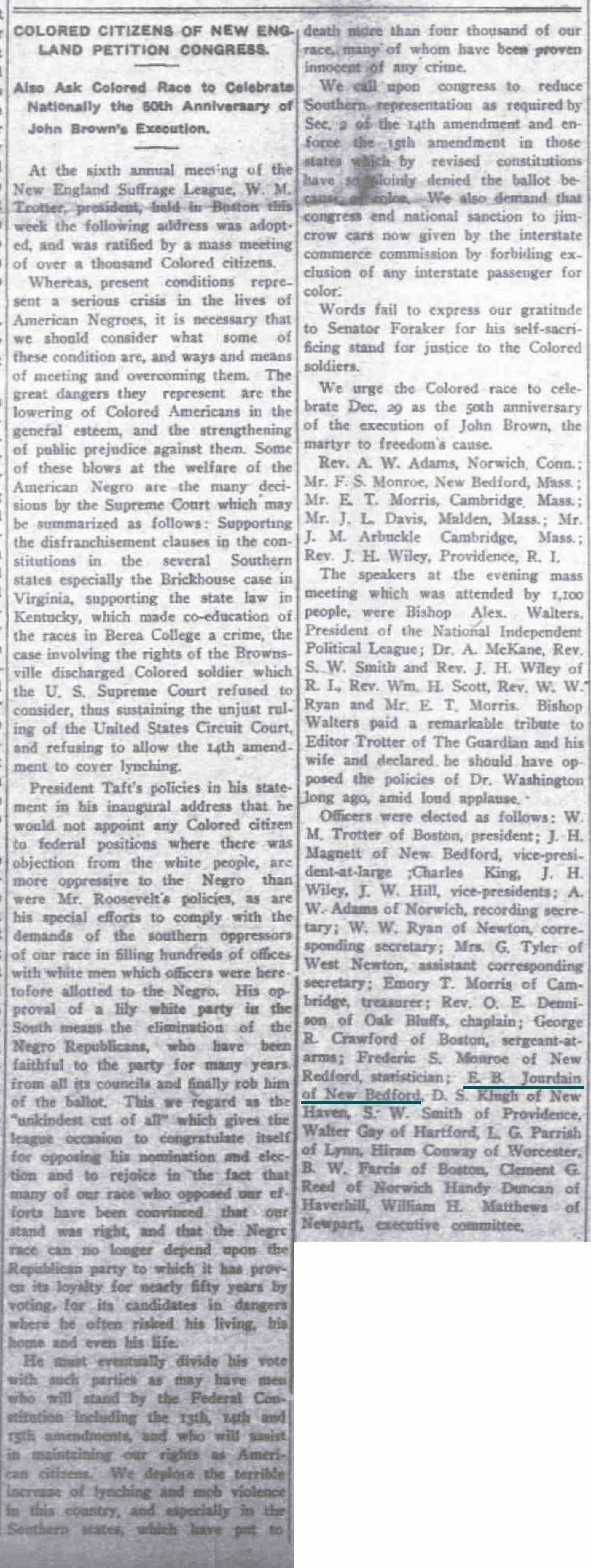
Jourdain Sr. regularly appeared in national reporting on the activities of civil rights organizations in New England, such as this 1909 article on the sixth annual meeting of the New England Suffrage League where he was elected to the executive committee. “Colored Citizens of New England Petition Congress.” The Broad Ax. Salt Lake City, Utah. October 16, 1909/Public Domain
Open and scroll to read the article transcript
[headline across two columns]
Sham of American Democracy Exposed
[column 1]
NEW BEDFORD, MASS. — At a public meeting of the New Bedford Branch of the Colored Civic League of Massachusetts, Edwin B. Jourdain made a strong address in which he defined the unadulterated Americanism, for which the League stands. The address, which was printed in the New Bedford “Mercury,” read in part as follows:
Why all this unrest, turmoil and violence in democratic America, vaunted “land of the free and home of the brave?”
Why this open and contemptous defiance of the laws of the land?
Because we are not sincere. Because American democracy is not real. Because we are satisfied with pretensions; with appearing to be what we are not; with proclaiming lofty platitudes and great principles, rather than practicing them.
Because our vainglorious boasting has degenerated into rank hypocrisy, and our national honor besmirched.
Our country has wonderful visions, she is dreaming of shedding the glorious light of democracy through all the world. But the salvation of American ideals and institutions, the security of her very form of government, even of her existence, demands that she cease blowing irridescent bubbles, and turn the searchlight of truthful investigation within. That she x-ray her own political and social system and locate and eradicate the cancerous growth before it destroys her.
The nation must needs recognize the vital fact, that the so-called “Negro question” is the most fateful question before the nation to-day. It concerns both races; it embraces humanity.
It is not a question of race or color, it is solely and entirely a question of the supremacy of the American Constitution over the forces of mobocracy and lawlessness.
Upon the correct solution of the “Negro question” depends the future success or failure of American democracy with all that implies in world influence and welfare.
It is an axiom that — “Nothing is settled until settled right.” The “Negro question” has been sidetracked, pigeon-holed, kicked out of national councils, compromised by national government, but it still persists, and very evasion and compromise has brought shame and disaster to the nation.
It is the only controversy which ever developed treason in an entire section of the nation, disruted the federation of States, drenched the land in the blood of its choicest youth. And it lines the unrepentant South solidly up still in rebellion ’gainst right, its country’s laws and humanity. When I say “South” I mean the section which has unconstitutionally legislated against the manhood and the citizenship of every colored American within its borders. All of which is diametrically opposed to every principle of true Americanism and of democracy.
There is no color line in Americanism, none in the Constitution, the
[column 2]
Charter of American rights and liberties. And no man or section has the right to limit or define Americanism by either race, creed or color.
The leading exponents of Bolshevism, the most rabid opponents of democracy in the United States to-day, are not the foreign radicals, but Americans of Southern birth or sympathies, of the Dixon, Tillman, Vardman type, who spew forth their contempt for the Constitution of their country, and shriek their defiance of it from the rostrum, the pulpit, and even the floors of the national halls of Government itself, to which position the lawlessness, fraud, violence and unconstitutional legislation of their rebellious section has elevated them.
Does America desire that any part of our country should fall heir to the caste mantle of “the beast of Berlin?”
The colored American is still progressing despite all the obstacles hellish hate can interpose, his face is set toward the sunlight and the morning and either to this, his native land, of under alien skies if needs must be, he is going to work out his salvation and achieve his destiny. If American brutality forces him to expatriate himself, then American will have surrendered all right to her sounding proclamation of liberty and democracy and the day of her destiny will be over.
That must not, cannot be, and this black race which has fought for and died for this land is going to live and strive to put its principles and laws into practice, to redeem it from the forces of reaction and lawlessness.
[end of article; following story obscured by site designer]
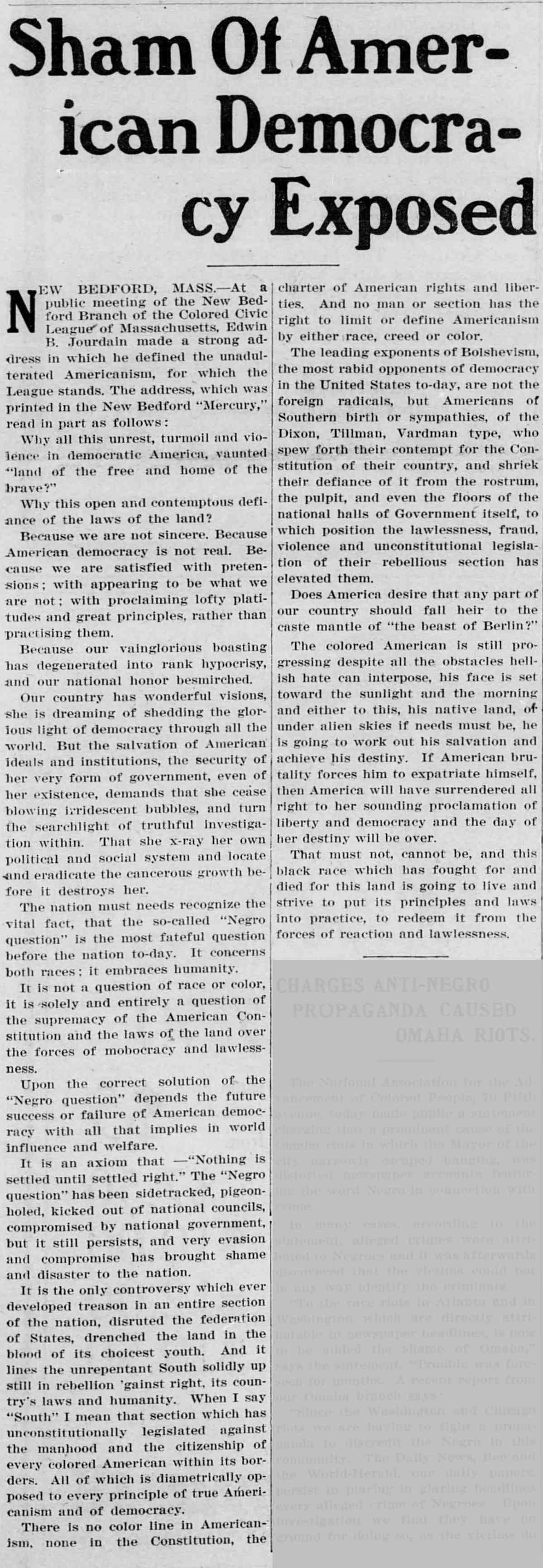
In 1919, Jourdain Sr. delivered a powerful condemnation of racism as a subversion of the U. S. Constitution, which was published on the front page of The Colorado Statesman. Denver, Colorado. October 11, 1919/Public Domain
Open and scroll to read the article transcript
[title appears within illustration of a neoclassical lintel set on two stylized columns, with the figure of lady justice with wings wearing long robes and holding scales at center; two additional columns and a mountainscape in the background]
THE COLORADO STATESMAN
THE JOURNAL OF THE WEST.
[inside left column]
LABOR
SHALL BE
FREE
[inside right column]
RACE
COUNTRY
PARTY
JOS. D. D. RIVERS……………Proprietor
P. O. Box 116 Phone Main 7417
1824 Curtis Street, Room 25.
[horizontal dividing line]
SUBSCRIPTION RATES
[horizontal dividing line]
One Year…………………$2.00
Six Months………………. 1.50
Three Months……………. .75
MUST BE PAID IN ADVANCE.
[horizontal dividing line]
Reading notices, ten lines or less, 15 cents per line. Each additional line over ten lines, 10 cents per line. Display advertising $1.00 per inch.
Entered as a second-class matter at the postoffice in the City of Denver Colo.
[horizontal dividing line]
Remittances should be made by Express Money Order. Postoffice Money Order, Registered Letter or Bank Draft. Postage stamps will be received the same as cash for the fractional part of a dollar. Only 1c and 2c stamps taken.
[horizontal dividing line]
No discounts allowed on less than three months’ contract. Cash must accompany all orders from parties unknown to us. Further particulars upon application.
[horizontal dividing line]
Communications to receive attention must be newsy, upon important subjects, plainly written only upon one side of the paper. must reach us Tuesdays, if possible, anyway not later than Wednesdays, and bear the signature of the author. No manuscript returned, unless stamps are sent for postage. All communications of a personating nature that are not complimentary will be withheld from the columns of this paper.
[horizontal dividing line]
THE OUTSPOKEN AMERICAN.
[horizontal dividing line]
THE address made by Edwin B. Jourdain before the New Bedford branch of the Colored Civic League of Massachusetts recently, and which we publish in part on the front page of this issue, brings vividly to our mind the old biblical expression, “Of the fulness of the heart the mouth speaketh,” and no sane American, whether colored or white, could take any other stand or if unprejudiced, would argue on any other side but the speaker’s. Throughout the address Mr. Jourdain has succeeded in proving what real Americanism stands for and we can only in indorsing this worthy address, say that the sentiments of all loyal Americans are with the speaker and a few more of such addresses will help to create a realization of the American situation.
[end of excerpt]
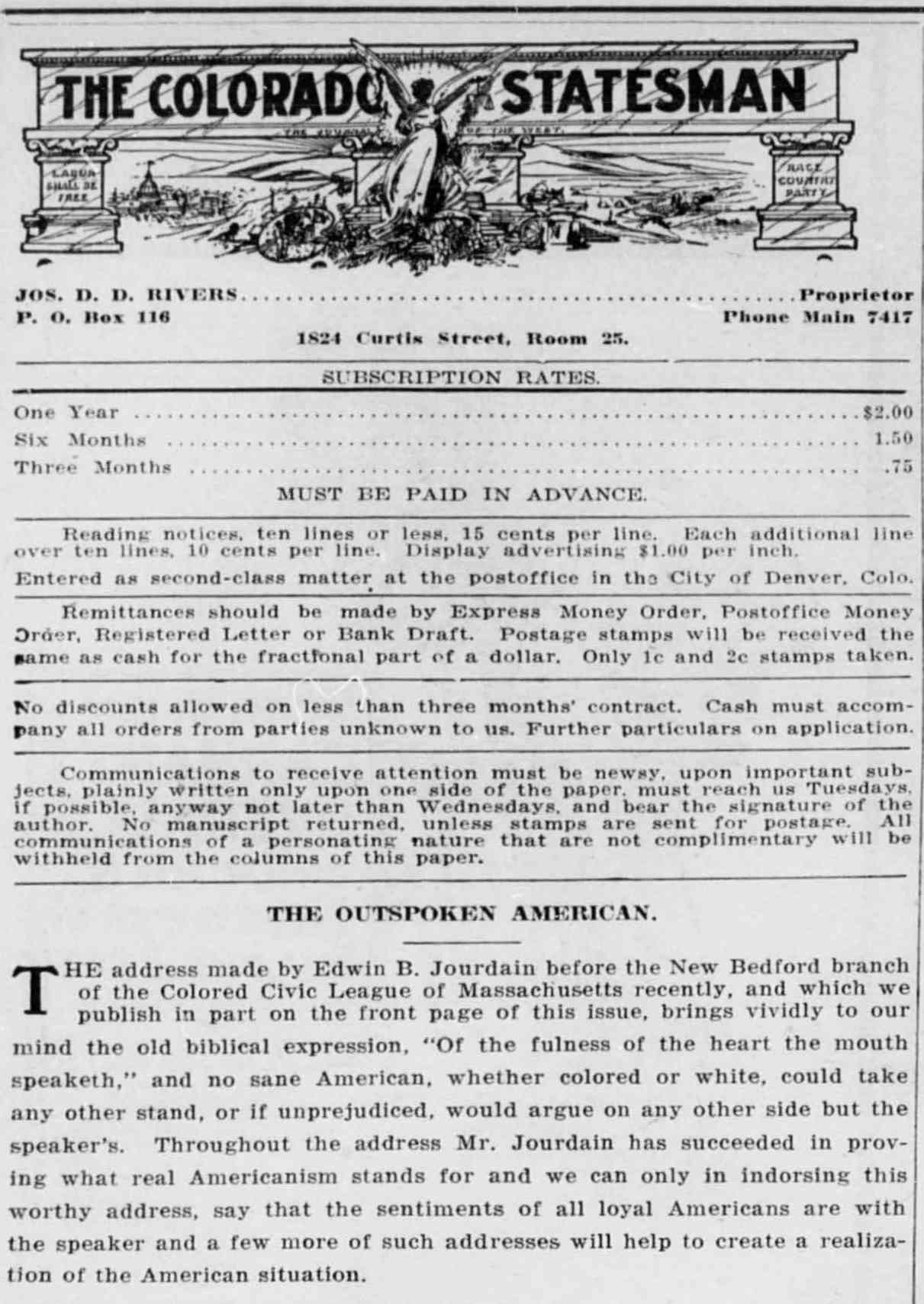
In 1919, The Colorado Statesman not only featured Edwin Jourdain Sr.’s remarks on the hypocrisy of American racism on its front page but also printed a strong endorsement of his speech, declaring that “no sane American, whether colored or white, could take any other stand, or if unprejudiced, would argue on any other side but the speaker’s.”/Public Domain
The Niagara Movement
The Jourdain family and Du Bois had an enduring friendship that lasted for generations. In 1905, Du Bois gathered a group of friends and fellow activists near Niagara Falls to create a new plan of positive action for Black civil rights and social justice. It was there that Edwin Sr., alongside Harvard alumni Trotter and Clement G. Morgan and 26 other Black activists founded the Niagara Movement — the forerunner of the NAACP.
Edwin Sr. raised early awareness in New Bedford about the organization by hosting events, such as the 1905 “Memorial to Friends of Freedom.”
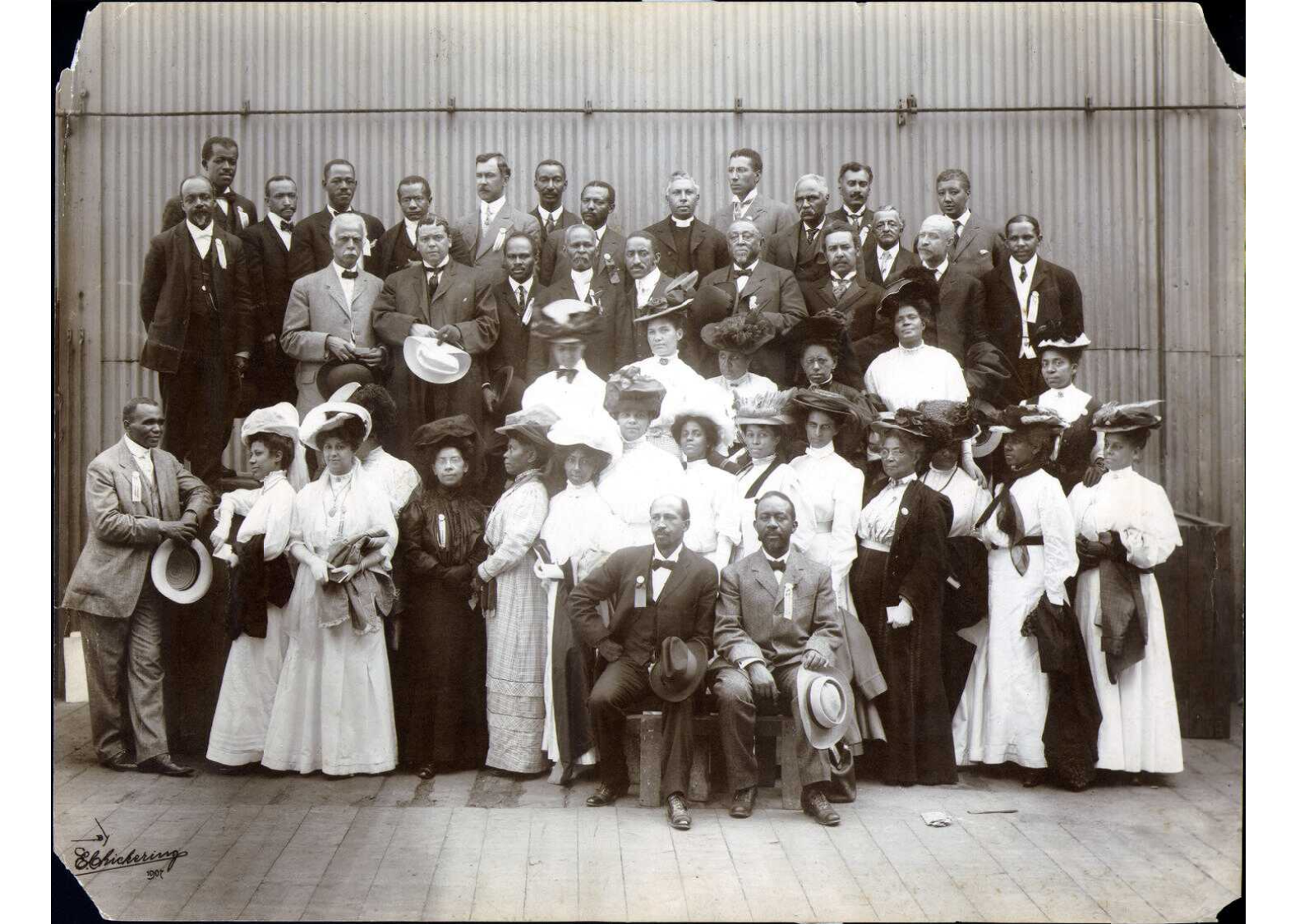
In 1905, Jourdain Sr. stood with Harvard alumni W.E.B. Du Bois, William Monroe Trotter, and Clement G. Morgan and 26 other Black activists to found the Niagara Movement — forerunner of the NAACP. E. Chickerings. “Niagara Movement delegates, Boston, Mass.” 1907. W.E.B. Du Bois Papers (MS 312)/Special Collections and University Archives, University of Massachusetts Amherst Libraries
Open and scroll to read the programme transcript
[some darkening and tearing visible at the edges of the paper]
NIAGARA MOVEMENT
[double horizontal dividing line]
[small abstract floral design]
········First Annual········
Memorial
to the
Friends of Freedom
[small abstract floral design]
THANKSGIVING NIGHT
—at—
Union Baptist Church
8 O’CLOCK
[end of page]
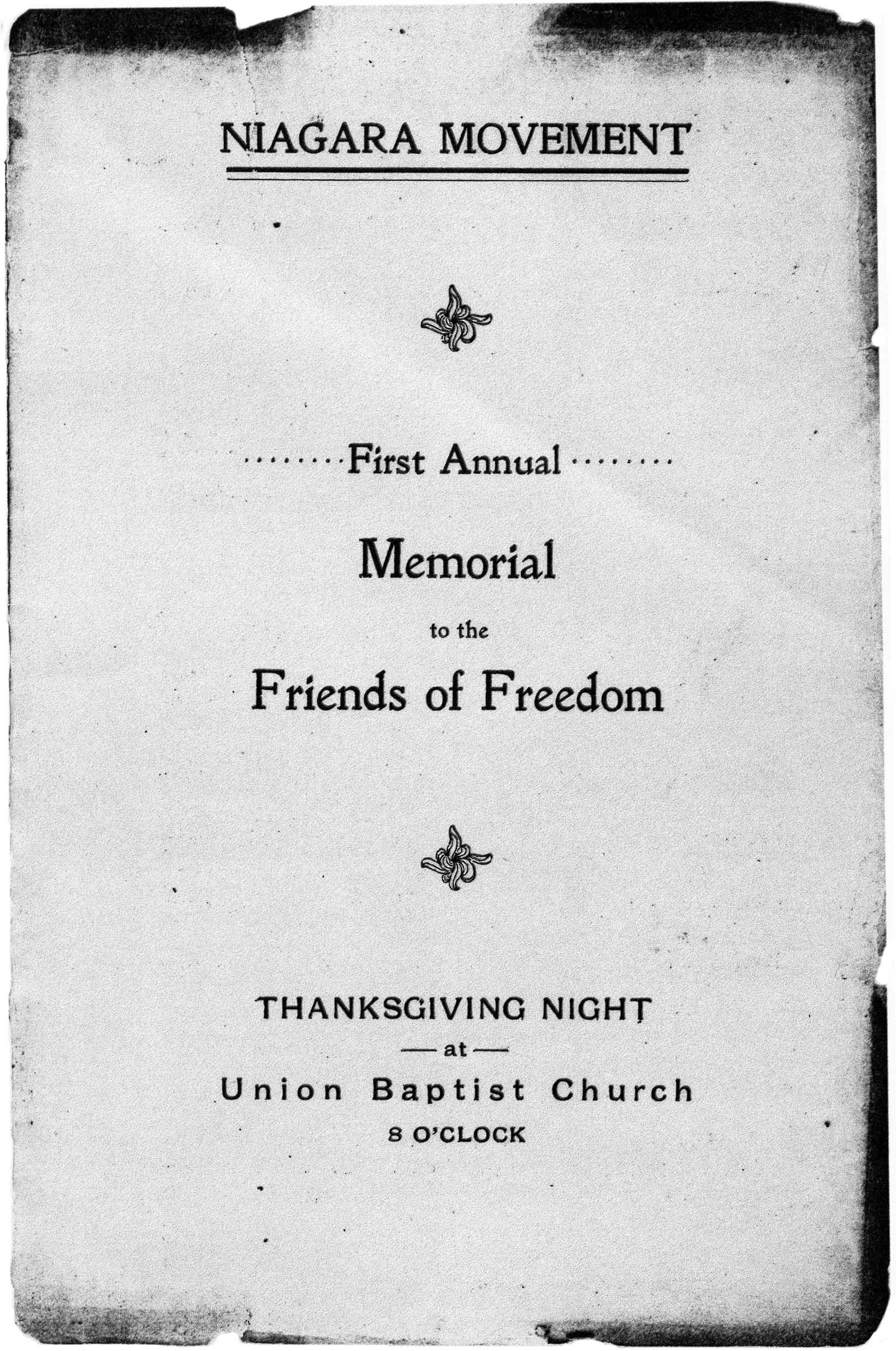
Jourdain Sr. raised early awareness in New Bedford about the newly organized Niagara Movement by hosting public events and fundraisers. “Niagara Movement First Annual Memorial to the Friends of Freedom.” Program Cover. Ca. 1905. Edwin B. Jourdain Jr. Papers/Courtesy of the Shorefront Legacy Center
Open and scroll to read the programme transcript
[some darkening and tearing visible at the edges of the paper]
PROGRAMME
[horizontal dividing line]
Organ Voluntary . . . . . Miss Maybelle Wilson
Invocation . . . . . . . Rev. J. L. Whitten
Singing . . . . . . . . . Chorus Choir
Introductory Remarks . . . . . .E. B. Jourdain
[under Jourdain’s name] Chairman Memorial Committee
Solo and Chorus . Original Hymn, by Jas. H. Magnett
Paper . . . . . . . . . . F. S. Monroe
“Glimpses of the Political Side of the Anti-Slavery Conflict”
Singing . . . . . . . . . .Chorus Choir
Address . . . . . By the Orator of the Evening,
Rev. Wm. H. Thomas, D. D.
Singing . . . . . . . . . . Chorus Choir
Paper . . . . . . . Mrs. Bernice B. Douglas
“Snap Shots of Anti-Slavery Women”
Singing . . . . . . .Chorus and Congregation
“Battle Hymn of Republic”
Benediction . . . . . . Rev. Wm. Wade Ryan
[horizontal dividing line]
Miss Maybelle Wilson, Musical Director.
[horizontal dividing line]
ADMISSION FREE. — A free-will offering will be asked for to lift the mortgage on the Frederick Douglass Memorial Home.
[end of page; end of program]
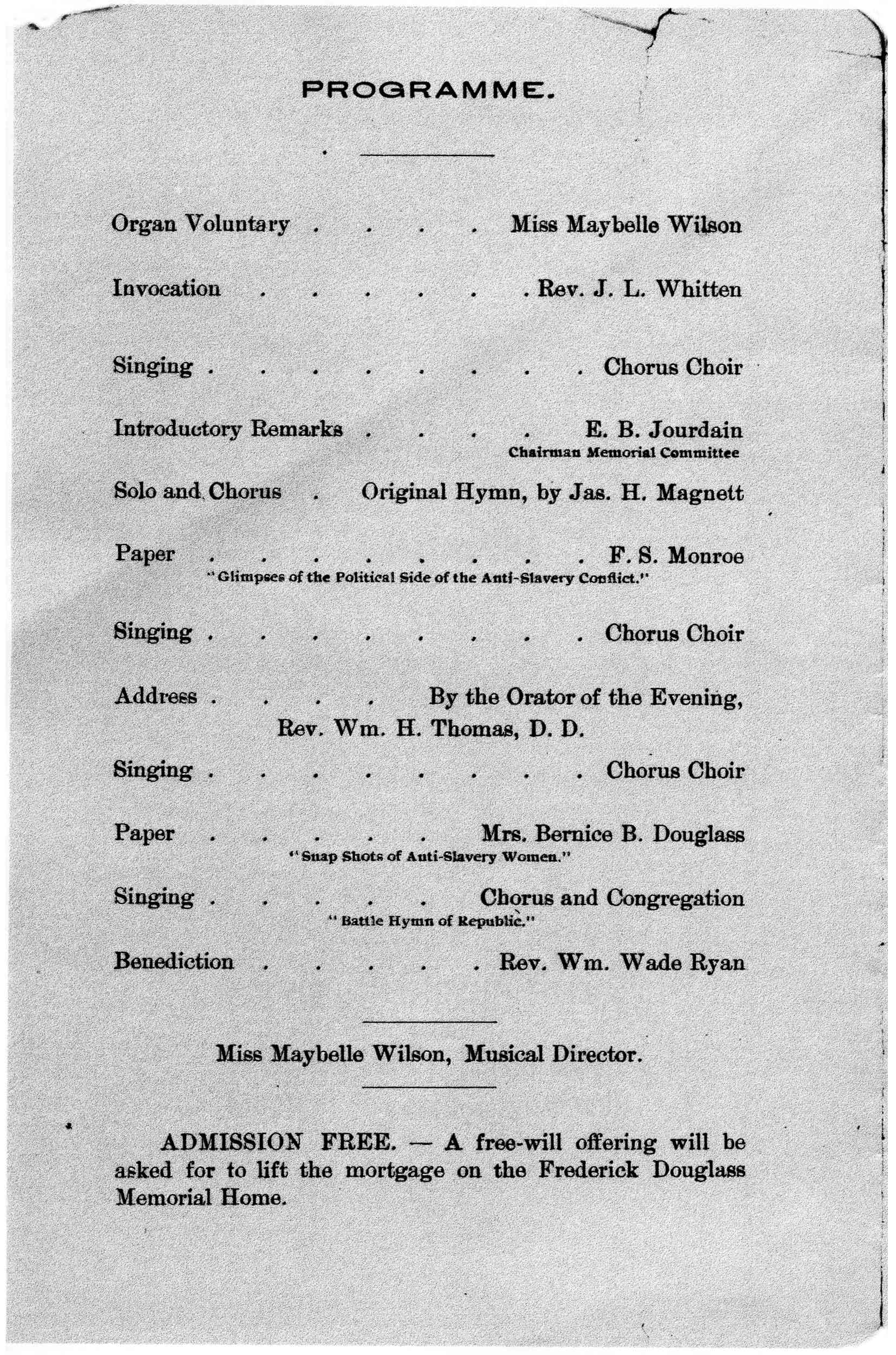
“Niagara Movement First Annual Memorial to the Friends of Freedom.” Program Cover. Ca. 1905. Edwin B. Jourdain Jr. Papers/Courtesy of the Shorefront Legacy Center
Edwin Jourdain Jr. Goes to Harvard
Attorney Jourdain’s children, including his son, Edwin Bush Jourdain Jr., grew up in the New Bedford Annex’s stimulating intellectual atmosphere that was dedicated to social justice. Upon graduating from New Bedford High School in 1917, Edwin Jr. was admitted to Harvard College in the Class of 1921. As a freshman, he lived in Standish Hall (now a part of Winthrop House); as an upperclassman and later a graduate student at the Harvard Graduate School of Business Administration (now Harvard Business School), he lived in Grays and Weld Halls in Harvard Yard.
The admission of Black people to Harvard did not accelerate until the 1960s, but in 1917, Edwin Jr. was a part of a small cohort of Black undergraduate and graduate students. They faced global political challenges like World War I and the 1918–1920 flu pandemic, all while navigating cultural norms on the predominantly white campus. Two of Edwin Jr.’s classmates who became his life-long friends were Edward “Ned” Gourdin (A.B. 1921, LL.B. 1924), a future Olympian, Harvard Law School graduate, and the first Black Superior Court judge in New England history, and William Leo Hansberry (A.B. 1921, A.M. 1932), later a groundbreaking Howard University anthropology professor.
Black Veritas: The Nile Club & Alpha Phi Alpha
Edwin Jr. and his fellow Black students — both graduate and undergraduate — cultivated a dynamic space at Harvard for their social and political endeavors called the Nile Club. In this intellectual discussion group, members analyzed and expressed their frustrations and dreams about the ongoing Black liberation struggle. Harvard alumni like Du Bois and national leaders like Marcus Garvey joined the students in some of these discussions.
Empowered by the strength of their collective advocacy, Edwin Jr. and others from the Nile Club, including Charles Hamilton Houston (LL.B. 1922, S.J.D. 1923), William Hastie (LL.B. 1930, S.J.D. 1933), and Jesse Heslip (LL.B. 1922), were among the charter members of the local chapter of Alpha Phi Alpha fraternity, the first intercollegiate Greek-letter organization established for Black men. Edwin Jr. was so respected by his peers that they elected him to serve as the chapter’s inaugural president. The students’ fraternal bonds fostered life-long relationships and positioned them to become national leaders on major civil rights and political issues of the Jim Crow era.
Open and scroll to read the certificate transcript
[rectangular border of four parallel lines]
[decorative heraldic shield]
[calligraphic font in downward curving arch]
Alpha Phi Alpha Fraternity
[printed horizontally]
[calligraphy] Let it be known that
[calligraphy printed on top of a dotted line] Edwin B.Jourdain, Jr.
[regular type] is a duly Initiated [calligraphy printed on top of a dotted line] Active [regular type] Member of [calligraphy printed on top of a dotted line] Alpha Eta [regular type] Chapter located at [calligraphy printed on top of a dotted line] Harvard University, Cambridge
[regular type marked out] Initiated [calligraphy printed on top of a dotted line] Charter Member, January 21, [regular type] 19 [calligraphy printed on top of a dotted line] 22
[signatures presented in two columns]
[column 1]
[handwritten in cursive] Edwin B.JourdainJr.
[pre-printed type] President
[handwritten in cursive] JohnW.Hughley,Jr.
[pre-printed type] Secretary
[column 2]
[handwritten in cursive] SSBooker
[pre-printed type] General President
[handwritten in cursive] NormanLMcGhee
[pre-printed type] General Secretary
[bottom center: embossed circular gold foil seal with short gold and black ribbons extending from bottom]
[outer ring]
ALPHA PHI ALPHA FRATERNITY
[center]
FOUNDED
1906
[end of certificate]

Jourdain Jr. was among the charter members of the local chapter of the historically Black Alpha Phi Alpha Fraternity, the first intercollegiate Greek-letter organization for Black men. “Alpha Phi Alpha membership certificate.” 1922. Edwin B. Jourdain Jr. Papers/Courtesy of Shorefront Legacy Center
Open and scroll to read the article transcript
[column 1]
THE HARVARD CRIMSON
[horizontal dividing line]
Entered at the Boston Post Office, Boston, Mass., as Second Class Mail Matter, Dec. 1, 1887.
[horizontal dividing line]
F. Workum ’20, President.
W. J. Louderback, Jr., ’20, Managing Editor.
W. W. Rowe ’20, Business Manager
[horizontal dividing line]
Published daily except Sundays, holidays and during vacations.
[horizontal dividing line]
The Assistant Managing Editor in charge may be found in the office daily from 5 to 7 P. M. except Saturday and Sunday.
The Business Manager may be found at his office from 8.30 to 10 A. M. except Saturday and Sunday.
[horizontal dividing line]
Crimson Printing Co., Plympton Street, Cambridge, Mass.
[horizontal dividing line]
WEDNESDAY, OCTOBER 1, 1919.
[double horizontal dividing line]
LOOKING FACTS IN THE FACE.
[horizontal dividing line]
“I yield neither to Senator Borah nor to any other man in admiration of the Farewell Address; . . . . . but I believe that the greatness of Washington was due to his looking the facts of the day in the face, and determining his conduct thereby, instead of by utterances, however wise, of a hundred and fifty years before.” These words, written by President Lowell in answer to Senator Borah’s attack on him for his lack of reverence for Washington’s last official words, are irrefutable. Looking the facts in the face is what the whole world must do unless it desires to slip back into the dark ages. Although the present is built on doctrines and theories of the past, many of the latter are obsolete now. The whole organization of society has changed. New means of transportation has greatly decreased, whether we willed it or not, that isolation of this nation which Washington urged. By our entrance into the World War, we gave up formally our position apart from the affairs of the world. We are in them now; we cannot withdraw. The progress of science and the development of a humanitarian feeling for the rest of mankind has placed us irrevocably on the side of world politics.
We should like to ask Mr. Borah whom he regards as an ultimate authority on statesmanship. He once declared that if the Savior should reappear on earth and support the League, he would nevertheless vote against it. And yet this illustrious senator terms President Lowell a traitor to the past because he does not apply the words of Washington, uttered more than a century ago, to the events of today. Surely the senator from Idaho is oddly inconsistent.
[double horizontal dividing line]
OUR NATIONAL DISGRACE.
[horizontal dividing line]
For more than a generation, American statesmanship has persistently striven to avoid, ignore or forget an inconsistency in our American institutions whose existence is a blot upon our national honor — the criminal practice of lynching. Outbreaks like that which held the city of Omaha, Nebraska, in a reign of terror for nine hours, — culminating in the killing of one citizen, the serious injury of at least two others, an unsuccessful attempt to lynch the Mayor of the City,
[column 2]
and the successful lynching of a prisoner charged with a heinous crime, — are but the eruptive symptoms of a disease which has eaten into the fabric of American life.
Lynching is a denial of the right secured by law to every man accused of a crime to a fair trial before an established court. It brutalizes the communities which suffer it by breeding a spirit of lawlessness and cruelty in those young people who constantly witness barbarities unpunished and uncondemned. It blots our fair fame as a nation, for we cannot claim to be civilized until our laws are respected and enforced, and our citizens secured against the hideous cruelties of which we are constantly furnishing fresh examples.
How many more such outbreaks must occur? How much longer must we congratulate ourselves upon “only 62 lynchings” for a given year before the aroused conscience of the American people, efficiently asserting itself through Federal authority, moves to stamp out this national disgrace?
Lynching, like Slavery, has never recognized racial or geographic limits; as the fate of the Mayor of Omaha forcibly reminds us. Hundreds of white men in this country have been victims of lawlessness and mob violence; it was the lynching of a Montana labor leader that called forth President Wilson’s utterance of July 26th. It cannot be confined to the South: excluding New England, there is not a single section of the Union which has not been the scene of at least one lynching in the past 22 years. The evil is national in range and scope; the nation must provide the remedy.
America is the accepted spokesman of world democracy, but a chain is no stronger than its weakest link. A doctrine which breaks down at home can hardly be propagated abroad. We have passed the day of the pious slaveholder who became so deeply impressed with the plea for foreign missions that he sold one of his slaves to contribute liberally to the cause. If democracy cannot control lawlessness, then democracy is a failure.
A few years ago a Turkish Ambassador was handed his passports for calling attention to the inconsistency between our national preaching and practice. Never once during the late war did the German press fail to gloat over American atrocities, while now, with the Treaty of Peace not yet signed, our Allies can hardly restrain the accusing finger at our “peculiar American practice of lynching.” When it was considered that President Wilson might intervene on Ireland’s behalf, it was seriously moved in the English House of Commons that a committee be appointed to investigate and report upon the American institution of lynching, while only this past week a Boston paper publishes a reprint from a French daily expressing astonishment and horror at this “relic of barbarism in America.”
The practice of lynching does not prevail in Canada, nor in England and France. How long must America be compelled to accept the reproach:
“Thou hypocrite, first cast out the beam out of thine own eye—”?
[end of page]
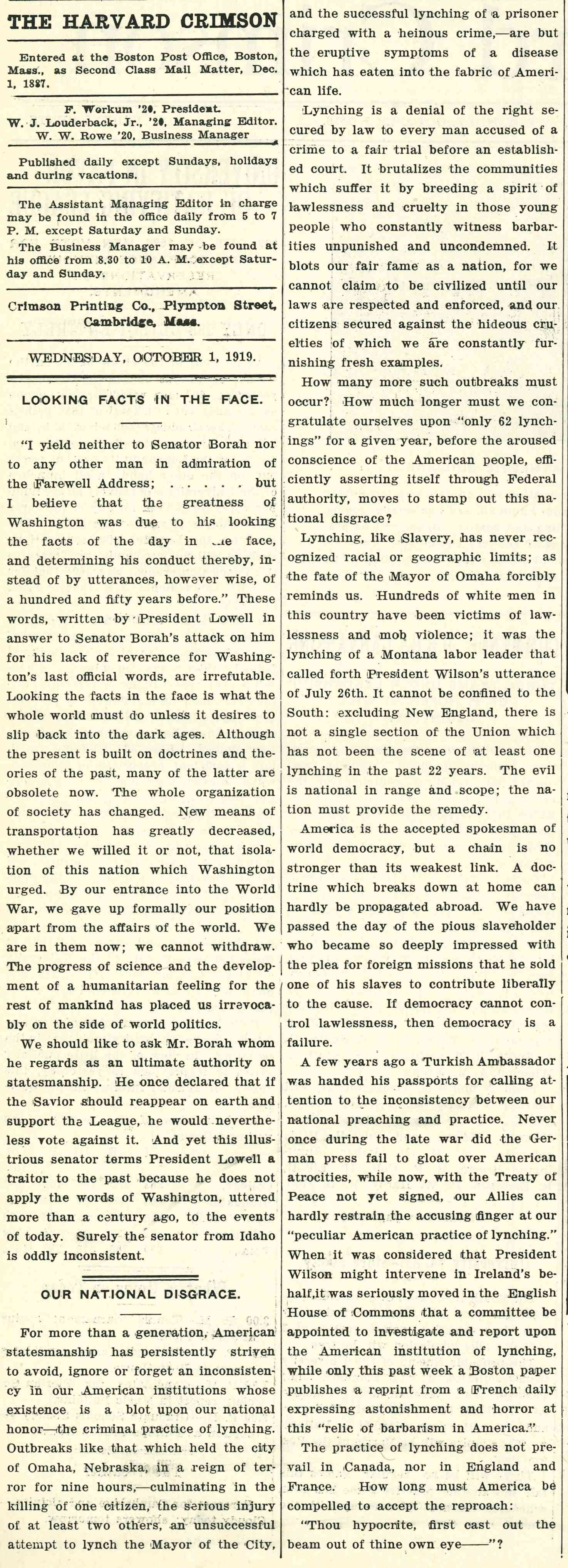
Jourdain Jr. and his Black classmates also formed a group called the Nile Club, where they discussed the social and political issues confronting Black people. They brought their perspectives before the wider Harvard community in outlets like the student newspaper, The Harvard Crimson. Edwin Jourdain Jr. “Looking Facts in the Face.” Oct. 1, 1919/Harvard University Archives
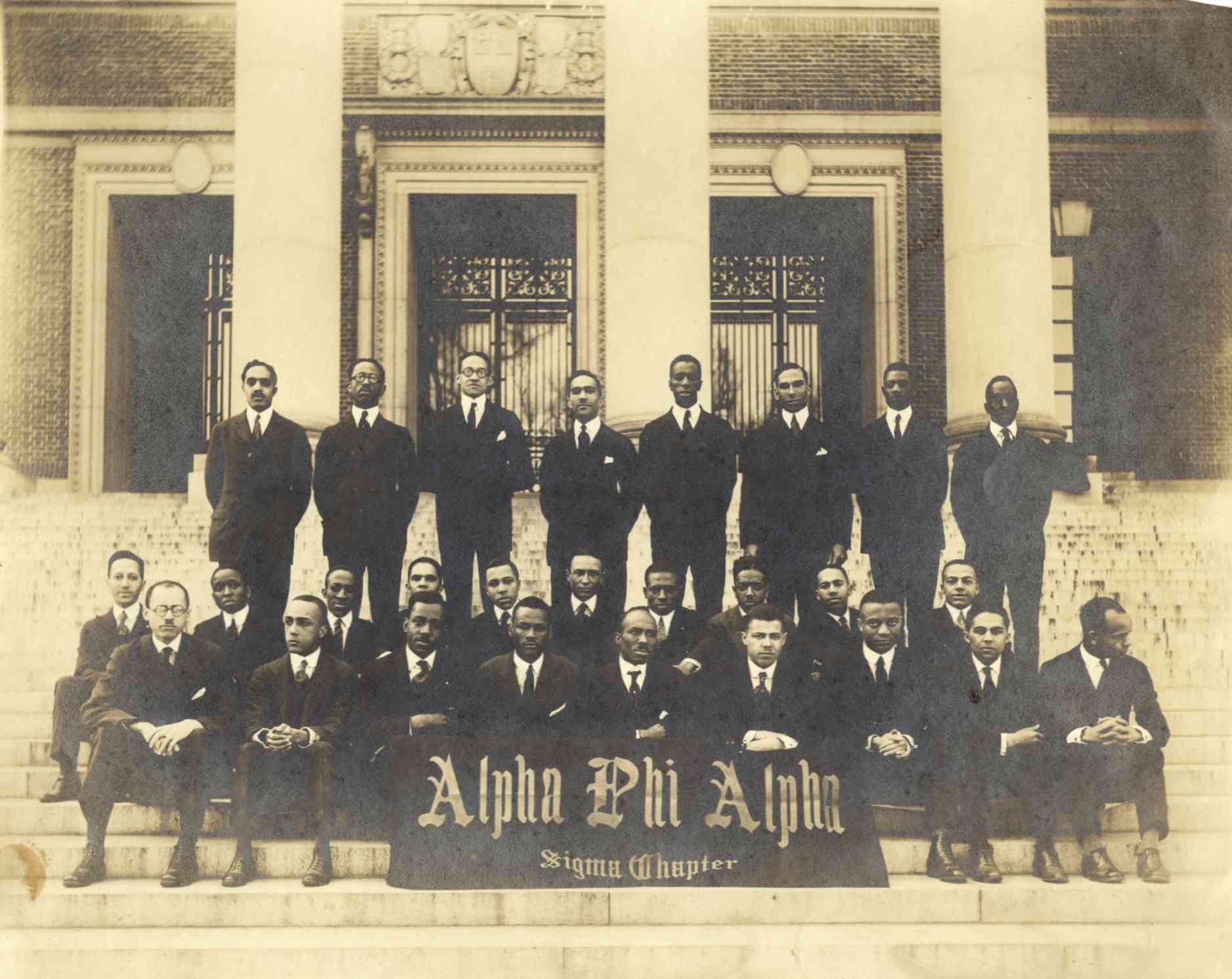
Jourdain Jr. (second row, fifth from left) is pictured here on the steps of Harvard’s Widener Library with the 1921–1922 members of the chapter. “Alpha Phi Alpha Fraternity, Inc. on Widener Library steps.” 1921. Edwin B. Jourdain Jr. Papers/Courtesy of the Shorefront Legacy Center
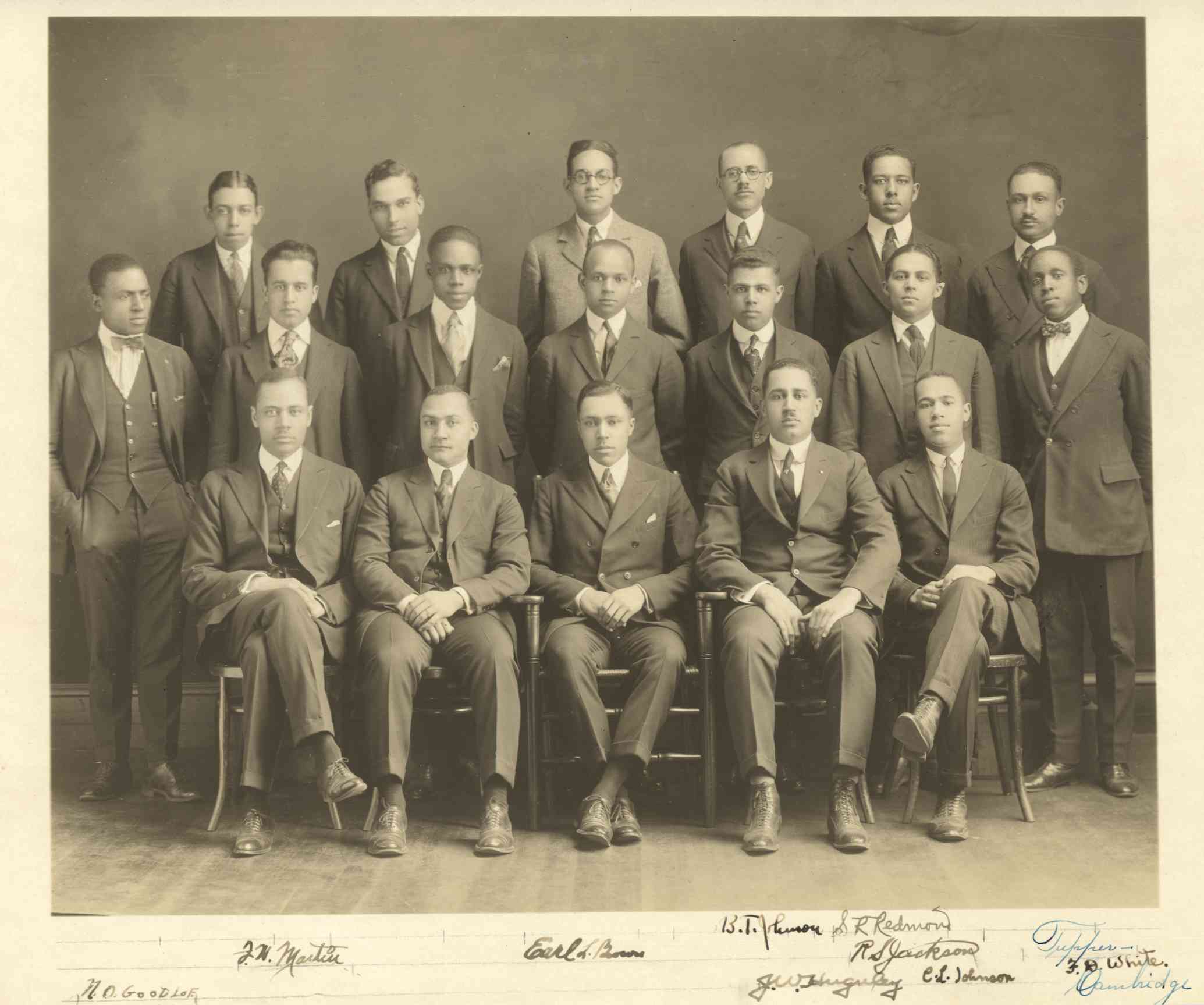
Jourdain Jr. (seated, center) was elected the chapter’s inaugural president. Tupper, photographer. “Alpha Phi Alpha fraternity, Alpha-Eta chapter (Harvard University), charter members, group photograph.” Cambridge, Massachusetts. Circa 1922. Edwin B. Jourdain Jr. Papers/Courtesy of the Shorefront Legacy Center
A Leader in the Fight for Equality at Harvard
In September 1921, when William Knox Jr. — a fellow Black New Bedford resident — was denied freshman campus housing at Harvard because of his race, he turned to Edwin Jr. for help. Edwin Jr., who was at the time enrolled at the business school, mobilized the Nile Club to publicize the discriminatory practice. He also met with University President Abbott Lawrence Lowell to advocate for Knox and other Black students, but to no avail. Still refusing to accept Lowell’s discriminatory policy, Edwin Jr. then helped launch a national campaign against segregated campus housing. Letters and articles from Nile Club members and Black alumni like educator Roscoe Conkling Bruce (A.B. 1902) helped create national outrage, while a petition from white alumni added yet more pressure. In the spring of 1923, Harvard’s governing bodies voted to amend Lowell’s policy on freshman housing, marking the official desegregation of campus dormitories.
Edwin Jourdain’s notes on meeting with Abbott Lawrence Lowell
1921. Papers of Albert Bushnell Hart, HUG4448, HUG 4448.6. Box HUG 4448.6. Box 9, Folder 30/Harvard University Archives
Open and scroll to read the notes transcript
[handwritten in pencil] Please return
[stamped at top of page, surrounded by rectangular line border]
From
Albert Bushnell Hart
Cambridge, Mass
An interview with President Lowell was arranged through the efforts of Dean Chase, Saturday morning, October 1st,1921, and extended from about 10:50 to 11:45 A. M. The many subjects touched upon, and the innumerable twists of the conversation make reproduction difficult, but the following is an honest attempt to reconstruct its salient features.
[handwritten at the bottom of the page]
Box: Hart Papers – 4448.6
“Correspondence
“Harrodsburg, Ky. – Italy, Fascism”
Folder: “Harvard – (Miscellaneous)”
[end of page]
Open and scroll to read the notes transcript
I opened the conversation, as soon as greetings were exchanged:
“President Lowell, I have been in conference with Dean Chase regarding the case of a graduate from my own High School, whom I was largely instrumental in inducing to come to Harvard. He was admitted into the present Freshman Class, but in his application for a room in the Freshman Dormitories-was unfortunate.
The Office explained this,- at first – as due a mistake in the allotment; and later- as due to the late arrival of his application,- but Dean Chase informs me that you have ruled that ‘no Negro shall be allowed to live in the Freshman Dormitories’.
During my Freshman yar, the general rule was that ‘all Freshman were expected to live in the Freshman Dormitories’, and, assuming that this rule still obtained, I assisted Knox in filing his application. If that rule has been amended, or supplemented, but a recent ruling of yours, as a Harvard man, and interested in future arrivals to the University, and as the one who induced Know to Harvard(and therefore responsible for his present position), I am quite naturally interested in the details of the ruling.”
President Lowell, after a pause, began, deliberately:
“Yes, I know the case. When we assigned Knox his room, we did not know that he was a Negro. The ruling under which he was barred is not a new one. It was theassumption from the start that no Negroes should occupy the Freshman Dormitories, and I was unaware that any precedent had been established to the contrary.
The Freshman Dormitories are primarily a social affair. They were built because in years back the rich fellows would all congregate on the Gold Coast, while the poorer students were left to themselves- and that was not right. (This emphitically). The Freshman Dormitories
[end of page]
Open and scroll to read the notes transcript
-2-
were designed to weld the Freshman Class into a unit and create a social solidarity by grouping men in a congenial manner.
Our Freshman come here from all sections of the country, and their number includes many whose entire training and inherited notions would make it extremely distasteful for them to have to live in proximity with members of a certain group. We cannot by compelling them to live in the Freshmen Dormitories force them into socila relations which would be equally unpleasant for all concerned. Because we group rich and poor does not mean that we must group black and white, if that grouping will result in unpleasant relations.
There is [underlined] no rule [underlined] compelling all Freshman to reside in the Freshman Dormitories. The rule reads that ‘al Freshmen are expected to live in the Freshman Dormitores, except those whom the Assistant Dean permits to live elsewhere’,- and it has always been expected that the Assistant Dean should be allowed full discretion in allotting rooms in the Dormitories. For instance, there is a large group of Freshmen resident in this vicinity, who prefer to live at home, and it would be unwise to compel them to live in the Dormitories. Then there are always some men whose records indicate to the Assistant Dean that their presence in the Halls would be uncongenial, and they are advised to seek rooms elsewhere. Similarly, in a group of men including many from various Southern states, the presence of one or two Negro students would be a source of friction and unpleasantness, and since the Freshmen Halls were built for the promotion of pleasant and congenial relationship, it was assumed from the start that Negro students would not room there.”
“You simply assume that the presence of a Negro student in the Freshman Dormitories will inevitably occasion friction and unpleasantness
[end of page]
Open and scroll to read the notes transcript
-3-
May I instance, in contradiction, my own as the case of a Negro who lived for an entire year in the Freshman Dormitories with so little unpleasantness and such entire absence of friction or a disturbance of any sort, that you yourself have confessed your ignorance during three years of the fact of my having lived there at all.”
“It is true that I did not know until Dean Chase informed me about three weeks ago that you had ever lived in the Freshman Dormitories.”
“Had you been informed, would your ruling have applied to me?”
“Yes.”
“Yet I spent a delightful year in the Halls, I think I may say, at no one’s expense.” (I meant to say at the expense of no embarrassment to other residents of the Hall).
“The fact of one Negro’s being able, in a single instance- (you will remember that 1917 – ’18 was a war year- when the conditions were unsettled, and there was not the demand for rooms in the Halls)- to enjoy your experience- ( and I have no doubt of what you say)- does not prove that to bring the groups together on terms of social equality will always be so successful.”
“May I interrupt to object to the term ‘social equality’? There is no such thing as a group social equality. Groups are neither socially equal nor unequal. Social relations are purely individual, and associations in dorm life or otherwise are purely individual matters. I could mention a dozen member of my race here in school who could have repeated my experience with equal pleasantness all round, while admitting that there areothers of different personality. But
[end of page]
Open and scroll to read the notes transcript
-4-
If you make groups your basis of judgment how can you choose?”
“I withdraw the term ‘social equality’. It does not imply the superiority or inferiority of one group as compared with the other. What I do mean is that there is a matter of congeniality among groups which we cannot overlook. And whatever our personal opinions of its justification, we must admit that the Southerner has, group in him, certain prejudices for which there is a wide historical background, and which cannot be eradicated over night. I do not agree with them, and I do not think it is fair for the Southerner to carry them abroad with him. When we Northerners go into the South we conform to their customs, and we can expect them to do the same. But if they refust to give up their prejudices, then we cannot disrupt the majority to suit the minority.”
“It seems that the Southerner is often made to bear more burdens than his own. Again I object to the idea of ‘group congeniality’, and insist that all such relations are individual. I could instance individual Southerners who would not at all conform to your group, just as there are members of my race with deep-seated prejudices against Southerners. I deny that you can tell men’s characteristics by labelling them in such groups. There was a theory in the Middle Ages that all red-headed men were criminals, but to arrest red-heads on suspicion of criminality was no less logical than to bar Negroes on the assumption of uncongeniality.
You agree that the Southerner has no right to carry his prejudices and enforce them abroad, yet you sacrifice your principle here. For whose benefit is Harvard being run!”
“It is not a question of principle. It is a fact that
[end of page]
Open and scroll to read the notes transcript
-5-
Southern students may object to being forced to reside in the Freshman Dormitorieswith Negro students. And Harvard has a large and constantly increasing number of Southern students, while the proportion of Negroes who apply for rooms in the Freshman Dormitories is small.”
“Then with you it is a mere matter of weight – of numbers. You care nothing for the principle involved.”
“I cannot find the principle in the forcing of artificial social relations which benefit neither side and may prove equally unpleasant to both. Our problem is to serve the greatest good of the greatest number”—
“Purely expediency.”
“Harvard as an institution of higher education does more for the Negro than any other large university, – our – doors are wide open, educationally, to the Negro, and we aim to keep them open to afford the Negro the opportunity for the very best of higher education In the class-room he has, and will always have, every opportunity that is open to any other student. The dormitories and dining halls, – with the exception of the Freshman Halls, whose primarily social nature I have explained- offer accommodations equally, and throughout the University the Negro student will find free educational opportunities. Harvard Medical School has always been exceptional in its attitude toward Negro students, often at the expense of disagreements with Southerners. I think that we are doing all that can be expected as an institution. Harvard draws from all sections of the country- and to serve the greatest good of the student number we must maintain a balance among conflicting groups. While educationally Harvard will always see that the Negro gets the fullest educational opportunities
[end of page]
Open and scroll to read the notes transcript
-6-
we cannot govern the majority for the sake of the monority to guarantee privileges which after all are not fundamental to education.”
“I deny that there is anything more fundamental than that the Negro student should maintain his dignity as a man. This he cannot do in the position you offer him. Harvard, in your description, offers the Negro ‘full educational opportunities’ – with reservations. It opens every avenue of collegiate activity – and in each places a barrier which he must recognize as his goal. That is if there is an amendment to the rule that ‘all Freshmen are expected to live in the Freshman Dormitories’, why not print it?”
“If we print that it will be as unpleasant for you as for us. We do notwish to advertise the fact that the presence of John Smith in the Freshman Dormitories would be uncongenial.”
“If the reason is justifiable, there will be no embarrassment.”
“That is not the question. We offer the Negro student everything he needs for his education. That is more than our fellow-schools are doing. If the Negro student is not content with this, and takes advantage of his position to force our hand, then we shall simply have to follow the example of Princeton and other colleges. If the Negro Freshman insists upon his right as a Freshman to live in the Freshman Dormitories, then we shall say that there will be nomore Negro Freshman We shall continue to offer the Negro educational opportunities as long as we can maintain our present position,- which I believe to bethe fairest to all round. How long that will be depends largely upon him. We have had questions arise before over Negro students which have been settled satisfactorily to all concerned. There was the case of a Negro whose presence on a Harvard baseball team caused Annapolis, some years
[end of page]
Open and scroll to read the notes transcript
-7-
ago, to refuse to play. The matter was taken up, and the Commandant told the Annapolis team that unless that game was played they would play no other than year – and so the team yielded. Harvard’s captain was advised of the fact, and then – in perfect agreement with the Negro on the team- the game was played without the player who had occasioned the discussion. You see that the Harvard Captain had won his point,”
“And failed to profit by it.”
“But he maintained his principle”-
“And failed to apply it.”
Several other incidents were cited by President Lowell as illustrative of his attitude and the position of the University, which he hoped I could now understand.
I replied that I could understand, but not respect the position, and with an exchange of greetings the interview closed.
Edwin B. Jourdain, Jr.
[end of page]
[end of meeting transcript]

Open and scroll to read the article transcript
[printed across columns 1–2]
COMMITEE OF ALUMNI INVESTIGATES CHARGES AND CRITICIZES ATTITUDE OF PRESIDENT LOWELL.
[horizontal dividing line]
[column 1]
Cambridge, Mass., June 29. — Harvard University scarcely having recovered its calm and self-satisfaction following the flurry over the admission of Jewish students, was called upon to face another charge today, that Negroes were barred from her million dollar freshman dormitories.
“Harvard turning into a Southern institution, the Colored man is not wanted, and every distinction that can be made to make us drop out is being made,” declared George McKinnon, a prominent member of the Nile Club.
The Nile Club is composed of the Colored students at the Cambridge institution, and the club members viewed with satisfaction the action of the alumni in starting a drive to send to the Harvard authorities a countrywide protest against any discrimination against Colored men.
During the war Edwin B. Jourdain, now a student in the college of business administration, was admitted to Standish Hall, a freshman dormitory. Jourdain states that he was treated with courtesy and no distinction was shown.
After he left the freshman class three Colored students attempted to gain admittance to the freshman dormitory, but were told it was full, and they had to room elsewhere. Last summer Cecil Blue of Washington and William Knox, Jr., of New Bedford, were excluded from the freshman dormitories. The presence of Jourdain and Ned Gourdin, Harvard’s world record broad jumper, caused Annapolis and Virginia to cancel track meets with Harvard in 1921.
The Committee, which is asking Harvard graduates to sign a petition that this race distinction me abandoned is headed by the Rev. William Channing Gannett of Rochester, N.Y., distinguished Unitarian clergyman and author, and Moorfield Storey, ’66, of Boston.
Mr. Storey was private secretary to Charles Sumner just after the civil war, having been president of the Massachusetts Bar Association and overseer at Harvard, and is now president of the NAACP. The Rev. Mr. Gannett matriculated at Harvard with the class of 1860 in the very heat of the abolitionist movement.
[column 2]
Lowell Replies to Critics.
President A. Lawrence Lowell of Harvard, speaking at the dinner of Associated Harvard Clubs before an audience of more than 2,000 Harvard alumni, defended both the university and himself in emphatic manner against the wave of criticism which recently has been directed against the university for its attitude upon the racial question.
“When ex-President Eliot introduced the elective system at Harvard the majority of the graduate body thoroughly disapproved of the new policy,” he said. “When Harvard adopted the present system of teaching law, which has now become recognized as the greatest in the whole world, the great majority of the graduate body thoroughly disapproved of the new policy.
the greatest in the whole world, the great majority of the lawyers of this country disapproved.
“When the Harvard Medical School established its present policy which has led it to the leading position, its policy was constantltly criticized. The whole history of Harvard has been on of struggles and disagreements, but its growth has been a healthy one.”
Responses From Alumni Favorable.
Since last Saturday the seven Harvard graduates who have constituted themselves a committee to bring pressure to bear upon President Lowell of Harvard to force him to rescind the order that no Negroes may live in the freshman dormitories at Cambridge, have received sixty replies to letters sent to other alumni. All but four or five of these letters uphold this committee, which contends that Harvard has resorted to Jim Crow tactics to discourage the Negroes from attending and placate the whites who decline to occupy the same dormitories and eat in the same mess halls with the blacks.
It was declared that the committee began mailing its letters to the alumni just one week ago and that it hopes to have 500 signatures to the memorial it will present to Dr. Lowell at the next meeting of the Harvard corporation. The intention is to have the petitioners represent the older graduates for the most part, and it will be clearly stated that this protest has nothing to do with the recent agitation concerning Jewish matriculation.
[end of article]
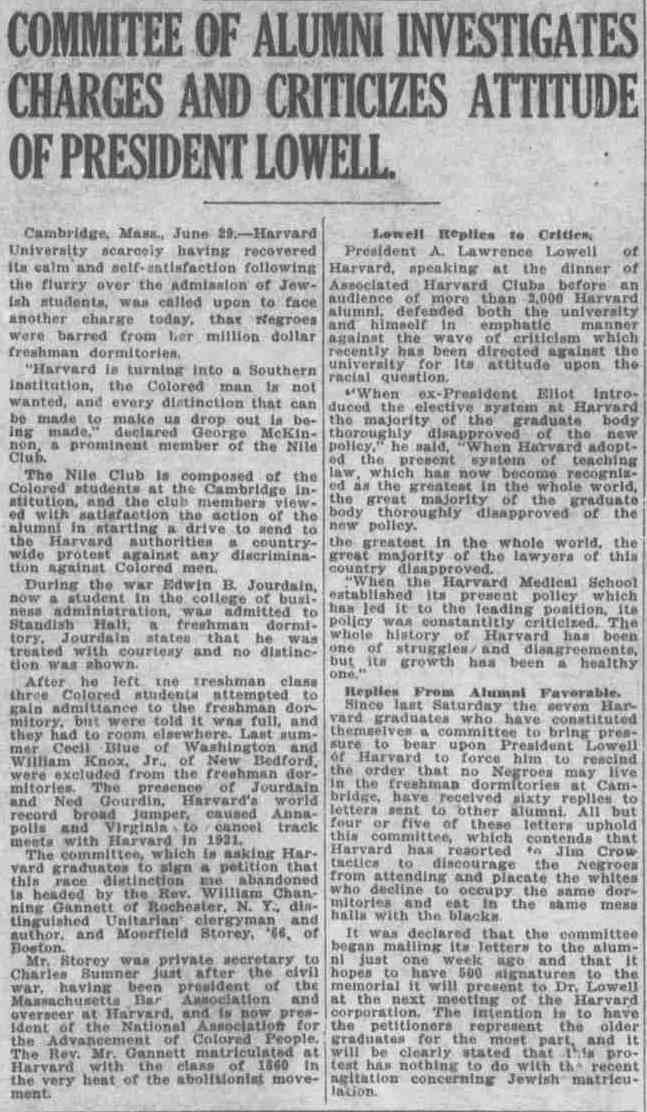
Newspapers nationwide covered the news of the segregation of Harvard’s dormitories, often featuring comments from Edwin Jourdain Jr. and other members of the Nile Club. “Committee of Alumni Investigates Charges and Criticizes Attitude of President Lowell.” The Dallas Express. July 1, 1922/Public Domain
Open and scroll to read the article transcript
[column 1]
NEGRO BAN ISSUE AROUSES HARVARD
[horizontal dividing line]
University ‘Turning Into a Southern Institution,’ Once Student Complains.
[horizontal dividing line]
DR. LOWELL REPLIES
[horizontal dividing line]
Critics of the University Long Have Opposed Proved Reforms, He Says.
[horizontal dividing line]
CAMBRIDGE, Mass., June 16. — Harvard University, scarcely having recovered its calm and self-satisfaction following the flurry over the admission of Jewish students, was called upon to face another charge to-day, that negroes were barred from her million dollar freshman dormitories.
“Harvard turning into a Southern institution, the colored man is not wanted, and every distinction that can be made to make us drop out is being made,” declared George McKinnon, a prominent member of the Nile Club, to-day.
The Nile Club is composed of the colored students at the Cambridge institution, and the club members viewed with satisfaction the action of the alumni in starting a drive to send to the Harvard authorities a countrywide protest against any discrimination against colored men.
During the war Edwin B. Jourdain, now a student in the college of business administration, was admitted to Standish Hall, a freshman dormitory. Jourdain states that he was treated with courtesy and no distinction was shown.
Three Students Barred.
After he left the freshman class three colored students attempted to gain admittance to the freshman dormitory, but were told it was full, and they had to room elsewhere. Last summer Cecil Blue of Washington and William Knox, Jr., of New Bedford, were excluded from the freshman dormitories. The presence of Jourdain and Ned Gourdin, Harvard’s world record broad jumper, caused Annapolis and Virginia to cancel track meets with Harvard in 1921.
The committee, which is asking Harvard graduates to sign a petition that this race distinction me abandoned is headed by the Rev. William Channing Gannett of Rochester, N.Y., distinguished Unitarian clergyman and author, and Moorfield Storey, ’66, of Boston.
Mr. Storey was private secretary to Charles Sumner just after the civil war, having been president of the Massachusetts Bar Association and overseer at Harvard, and is now president of the NAACP. The Rev. Mr. Gannett matriculated at Harvard with the class of 1860 in the very heat of the abolitionist movement.
[column 2]
Lowell Replies to Critics.
President A. Lawrence Lowell of Harvard, speaking at the dinner of Associated Harvard Clubs to-night before an audience of more than 2,000 Harvard alumni, defended both the university and himself in emphatic manner against the wave of criticism which recently has been directed against the university for its attitude upon the racial question.
“When ex-President Eliot introduced the elective system at Harvard the majority of the graduate body thoroughly disapproved of the new policy,” he said. “When Harvard adopted the present system of teaching law, which has now become recognized as the greatest in the whole world, the great majority of the graduate body thoroughly disapproved of the new policy.
“When the Harvard Medical School established its present policy, which has led it to the leading position among the medical schools of this country, its policy was constantly criticized. The whole history of Harvard has been on of struggles and disagreements, but its growth has been a healthy one.”
[horizontal dividing line]
Responses From Alumni Favorable.
Since last Saturday the seven Harvard graduates who have constituted themselves a committee to bring pressure to bear upon President Lowell of Harvard to force him to rescind the order that no negroes may live in the freshman dormitories at Cambridge, have received sixty replies to letters sent to other alumni. All but four or five of these letters uphold this committee, which contends that Harvard has resorted to Jim Crow tactics to discourage the negro from attending and placate the whites who decline to occupy the same dormitories and eat in the same mess halls with the blacks.
It was declared that the committee began mailing its letters to the alumni just one week ago and that it hopes to have 500 signatures to the memorial it will present to Dr. Lowell at the next meeting of the Harvard corporation. The intention is to have the petitioners represent the older graduates for the most part, and it will be clearly stated that this protest has nothing to do with the recent agitation concerning Jewish matriculation.
Only two of the Harvard overseers could be located in New York city yesterday and neither of them would talk about the matter. Federal Judge Julian W. Mack declared he would have “nothing to say about Harvard.” The other overseer insisted his named be omitted even from mention of his refusal to talk.
[end of article]
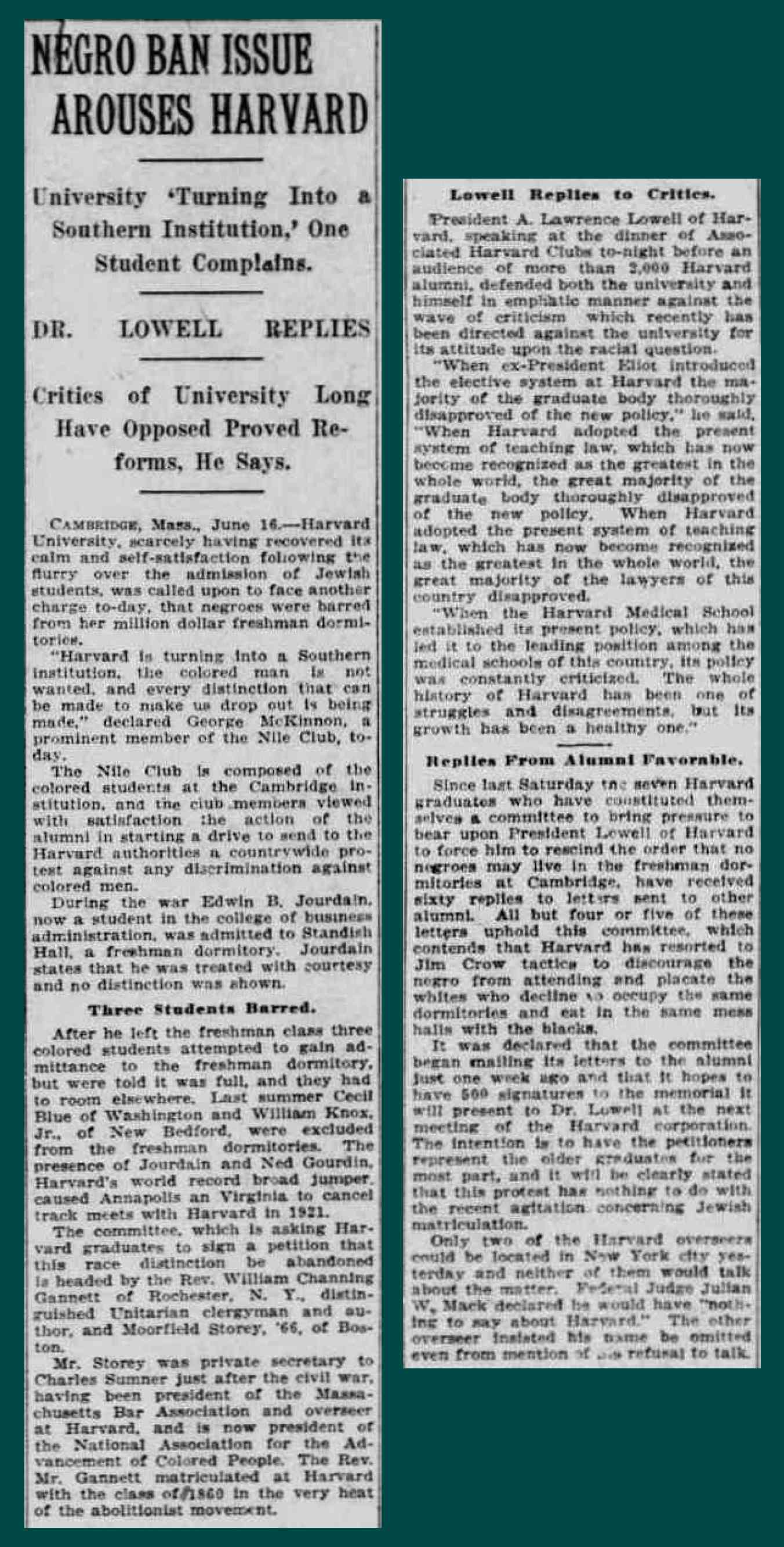
While much of the early coverage of the so-called dormitory crisis at Harvard appeared in Black newspapers, it received coverage in news outlets by and for white audiences as well. Here, Edwin Jourdain Jr. is quoted in the New York Herald. “Negro Ban Issue Arouses Harvard.” June 17, 1922/Public Domain
Open and scroll to read the article transcript
N. A. A. C. P. PRESIDENT PROTESTS JIM-CROWISM AT HARVARD.
[horizontal dividing line]
Moorefield Storey, national president of the NAACP, is one of a committee of graduates of Harvard university who have written condemning the new Jim-Crow policy there and demanding that segregation be discontinued even though it means a loss of Southern white students. A. Lawrence Lowell, president of Harvard, is blamed for the Jim-Crow policy. The committee’s letter of protest says in part:
“We believe that the university owes the Southern man the best possible opportunity for education, but we do not owe him the surrender of our Northern ideas of democracy and our Harvard ideals of justice. We do not believe that the Southerners who come to Cambridge for their education expect Harvard to give up her traditions.”
“The founders of the university,” the statement continues, “explicitly contemplates the inclusion of colored, i. e., Indian, students in its classes and buildings. The charter of 1650, still in force, refers to that intention. The present policy of exclusion means that the college is taking sides with those who would increase rather than lesson the burdens of the colored race. It is a Jim-Crow policy. The Alma Mater of Channing, of John Quincy Adams, of Sumner and Robert Gould Shaw, of the 54th Massachusetts Infantry, should not abandon the tradition of Harvard liberalism, tolerance and justice.”
[decorative horizontal dividing line]
[end of article]
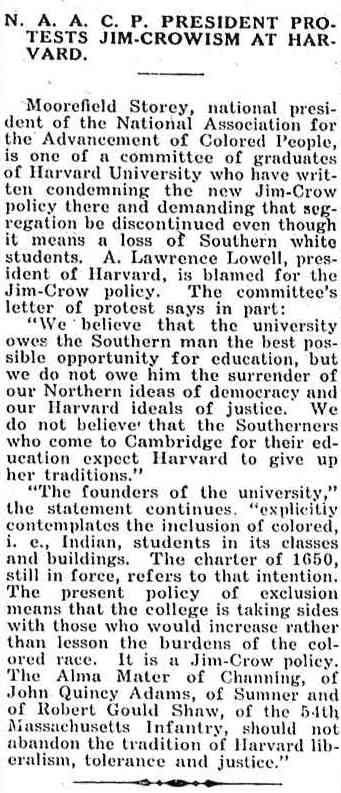
The protests of Jourdain and other Nile Club members against the segregation of Harvard’s dormitories drew national attention and outrage. In June 1922, Moorefield Storey — a white Harvard alumnus and the first president of the NAACP — condemned “the new Jim-Crow policy.” “N. A. A. C. P. President Protests Jim-Crowism at Harvard.” The Richmond Planet/Public Domain
Selected Sources
Edwin B. Jourdain Jr. Papers. BMRC.SHOREFRONT.JOURDAIN. Shorefront Legacy Center, Evanston, Illinois.
Jourdain, Spencer interviewed by Alexandria Russell. Harvard Radcliffe Institute. February 2023.
Jourdain, Spencer. The Dream Dancers: New England Preservers of the Dream, 1620–1924. Self-published, Lulu.com, 2011.
More profiles
The Great Migration
Emmaline Hardwick’s journey began in rural Georgia at the beginning of the 20th century. The Hardwicks’ experiences moving from the South to the suburban Midwest highlight how region determined access to resources and citizenship for…
The Jourdain Journey in Evanston, Illinois
As the first African American elected to Evanston’s city council, Edwin Jr. dedicated his life to political organizing and civil rights advocacy.



